News & Events
December 11, 2020
RIAS alumni network helps journalists in USA, Germany in the field
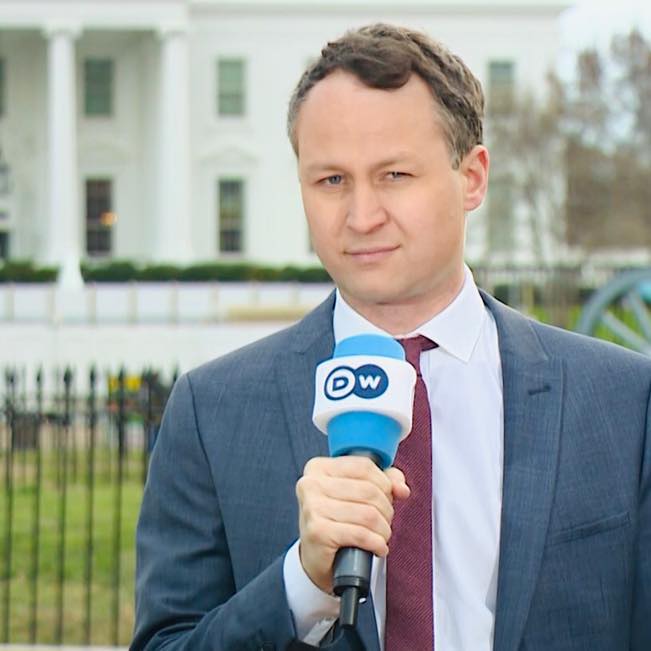
The alumni network of the RIAS Berlin Commission can be a treasure trove of journalists across Germany and the United States, as Oliver Sallet of Deutsche Welle and Ryan Delaney of St. Louis Public Radio have discovered recently. Both Sallet, who is based in Washington DC, and Delaney, who was recently on a fellowship in Germany, have found out there are well-connected RIAS fellows in towns and cities across both countries who are more than willing to help out when another RIAS alumni are visiting on assignments and appreciative of any support.
Sallet was heading to South Dakota to work on a story on the surge in Covid-19 cases in the sparsely populated state in the upper Midwest when he asked, almost on a lark, if there were any RIAS alumni in South Dakota. He was surprised to discover that among the 900 U.S. alumni there were not only RIAS alumni in the state but also candidates for future programs, such as Kevin King, the news director of Dakota News Now in Sioux Falls, who were more than eager to help point Sallet in the right directions.
King, who was scheduled to take part in a RIAS exchange program in 2020 before the pandemic cancelled all programs this year, was able to provide valuable contact names of Covid-19 victims and numbers of local authorities and a local hospital in Sioux Falls. That helped Sallet and his Deutsche Welle crew hit the ground running when they arrived in Sioux Falls. Sallet did this story that aired recently on Deutsche Welle: https://www.dw.com/en/south-dakotas-hands-off-stance-gives-free-reign-to-virus/av-55894352
“The RIAS alumni network is really helpful with on the ground insights and contacts,” said Sallet, who took part in a RIAS program to the United States in 2016 and has been based in Washington DC since 2019. “Kevin was really helpful. He gave me the cell phone number of the widow in the story whose husband died in October from Covid. He also knew the spokesman of the hospital and helped open the door there for us as well.”
“I was happy to help Oliver so he could hit the ground running when he arrived in South Dakota,” said King, whose Dakota News Now station is also known as KSFY KDLT. “COVID-19 has created challenges for everyone. When we as journalists can help each other, it benefits us and our viewers and readers.”
Sallet’s reporting for Deutsche Welle from the United States has previously benefitted from his contacts to alumni in other states, including Ann Thompson of NPR station WUXU and Chris Knight of the NBC affiliate in Cincinnati, Ohio. Please write to info@riasberlin.org if you’re eager to connect with RIAS alumni in other parts of the United States or Germany.
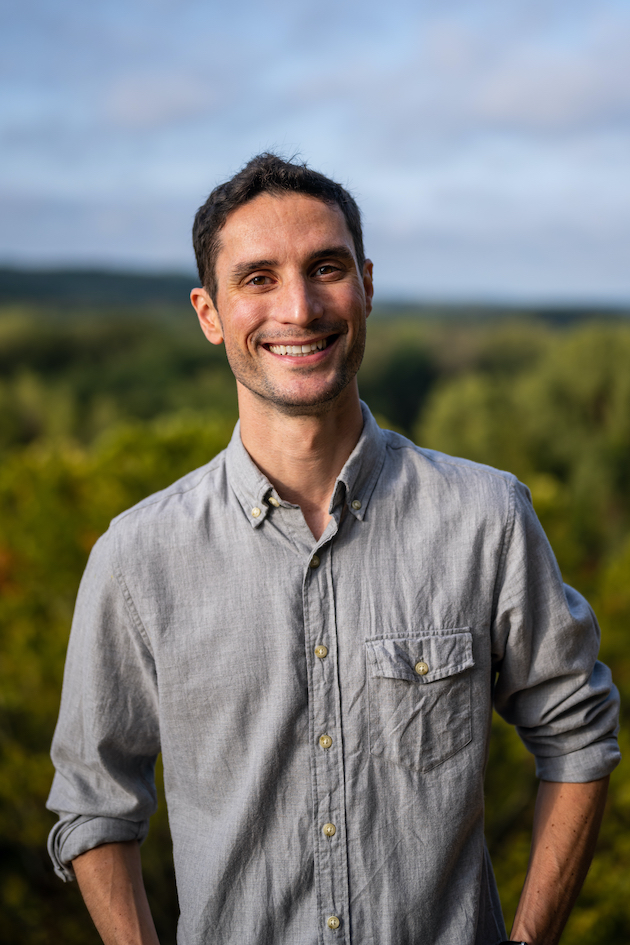
Delaney, who was on a RIAS fellowship to Germany in 2019, was back in the fall of 2020 to work on a series of stories on how the German education system is dealing with Covid-19 that he filed for both his local station as well as nationally for NPR and The World. Here is the entire series: https://pulitzercenter.org/projects/how-germany-reopened-its-schools-during-pandemic
Delaney, who covers education issues for the NPR station, reached out to the RIAS alumni before coming to Germany for a month long reporting assignment. The alumni chapter in Cologne was able to help set him up with a fixer who helped set up interviews and other alumni helped him with interviews in Erfurt and Munich. He was also able to reconnect with a number of guest speakers during his RIAS fellowship in 2019 for information and tips on contacts. Leon Ginzel, a RIAS alumni in Erfurt who works for MDR radio, was able to help Delaney.
“I wouldn’t have been able to pull this trip off without being able to build off all the connections I made during my RIAS experience last year,” said Delaney. “Both those I met directly and the alumni network made suggestions and connected me with sources for my stories. I was able to hit the ground running, even though I arrived just as the pandemic was grinding life back to a halt.”
December 4, 2020
NEW PRIZE MONEY, NEW FOCUS FOR 2021 RIAS MEDIA PRIZE AWARDS
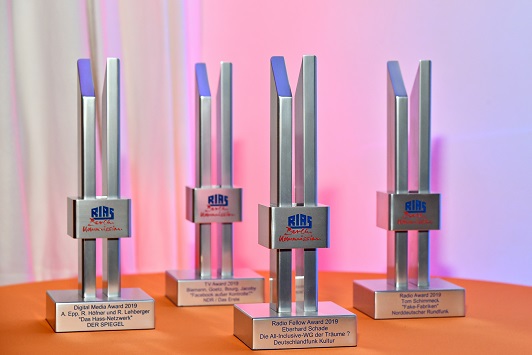
The RIAS Berlin Commission’s Media Awards will be relaunched in 2021 with new prize money, a new focus and new categories. There will be a total of up to 10,000 EUR in prize money awarded for exceptional radio, television and digital stories that includes a new 5,000 EUR grand prize for the single most outstanding entry that was broadcast in either the United States or Germany during 2020.
The RIAS Media Prize is intended to help strengthen the diversity of transatlantic dialogue and to deepen interest in German-American relations. Germany and the USA are each facing new directions in many respects, both internally and externally. Committed, independent journalism can contribute a great deal to mutual understanding of and between countries as well as to an open social discourse about values and goals. The contributions submitted should go beyond daily and routine reporting, should process information and describe social reality in a remarkable way, and promote dialogue on similarities and differences in transatlantic relations.
Ideally, contributions worth consideration should: stand out thematically and/or in their execution; take on new questions in a creative way; critically examine and make the diversity of social reality clear; contain interesting suggestions for transatlantic debate; encourage reflection on problems and solutions; question clichés about Germans and/or Americans; describe trends in everyday life that are of general interest; contribute in a special way to mutual curiosity and understanding; be suitable to strengthen democratic and societal values.
Entries must be received by RIAS Berlin Commission via email no later than January 31st, 2021. All work submitted must be the primary effort of the person or persons making the entry. RIAS Berlin Commission reserves the right to create additional categories such as a “Jury Prize” for awards or decline to make an award in a category where only a few entries or those of poor quality are received.
Radio, TV, and Digital Media Awards
DEADLINE FOR ENTRIES: JANUARY 31, 2021
Entries must include:
– full name, title, business address; phone, e-mail; posting date(s) of the story; its running length, word count, story title and brief description; a brief description of your role in the production of the story; Clearly indicate the category for your entry: Categories are: 1). Television 2) Radio 3) Digital (includes podcasts and online) 4) “RIAS Fellow Prize” (best TV, radio or digital entry by a current RIAS participant or RIAS fellow alumni). A maximum of two entries per person is allowed. An entry is considered to be one single entry when several shorter pieces relate in form or content to a specific category.
All entries must be submitted electronically via email with a valid URL that is active until March 2021 and can be accessed without proprietary information (password) by RIAS jury.
ALL ENTRIES SHOULD BE SENT TO:
Email: info@riasberlin.org
The RIAS Berlin Commission is a binational organization for the promotion of German-American understanding in the field of broadcasting.
Click here for the RIAS Media Prize Call for Entries 2020:
RIAS_Call_2021_Flyer English 04 12 2020
November 12, 2020
All in-person RIAS Berlin Commission exchange programs between Germany and the United States will be suspended through the first half of 2021 due to the Covid-19 pandemic but will hopefully resume in the second half of the year if conditions for travel and face-to-face meetings improve. That was the decision of the RIAS Berlin Commission taken at a recent (virtual) meeting of its board of directors.
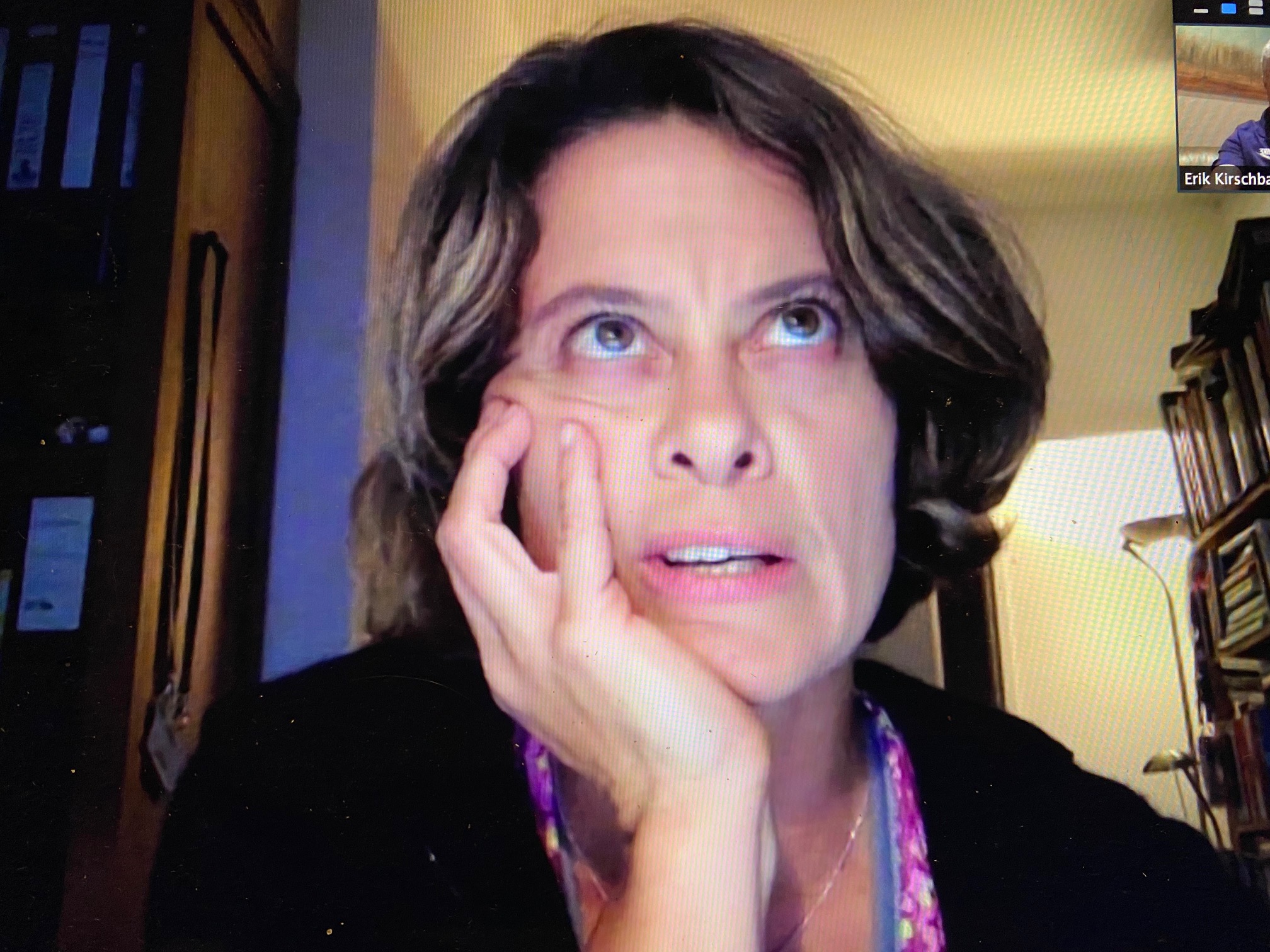
The 10 Commissioners from the United States and Germany also decided to extend the weekly offering of virtual meetings on Zoom with featured guest speakers – many of whom are guest speakers on in-person RIAS exchange programs. There have been 37 such Zoom talks with 41 guest speakers over the last six months and the Commissioners consider the talks to be a valuable addition to the German-American exchange program offerings.
The Commissioners – five from the United States and five from Germany – said they especially hoped that more candidates for future RIAS in-person programs would take advantage of the on-line offerings and take part in the RIAS Zoom talks as they were described an excellent opportunity to get a sense of what the in-person programs are all about. The RIAS Berlin Commission staff will explore ways to make the RIAS Zoom talks even more attractive and useful for candidates for programs as well as for about 100 broadcast journalists in the United States and Germany who have already been selected for programs in 2020.

RIAS Berlin Commission Executive Director Erik Kirschbaum told the board members that candidates who regularly attend the Zoom talks are not only gaining valuable insights into some of the key issues in Germany and the United States but are also greatly raising their chances of taking part in a RIAS in-person exchange program in the near future. Participating in the Zoom talks is a tangible way to demonstrate their interest in the program and being part of the large RIAS alumni network. Several candidates in both Germany and the United States have taken part in almost all of the Zoom talks.
“It’s a great learning opportunity and there’s hardly a better way to prepare for the RIAS program than by taking part in the virtual talks on Zoom”, Kirschbaum said. “I’ve learned all kinds of interesting new things about the USA and Germany myself — like some fascinating details about opinion polls in Wisconsin and how nervous they were from a leading pollster Charlie Franklin at Marquette University. Or some really interesting insights on the mood in the White House from Reuters correspondent Jeff Mason or about the pre-election buzz in Michigan and the reassuring fact that the armed militia in Michigan was probably just a very small number of individuals rather than a large-scale movement from Michigan Radio’s Vincent Duffy about what’s on the minds of voters in Florida from LaCrai Mitchell of CBS News.”
Many of the 1,800 RIAS alumni in the United States and Germany have long been taking advantage of the eclectic group of guest speakers. The list of speakers ranged from former Republican Congressman Charlie Dent (R-Pennsylvania), who accurately predicted the state would probably first vote to re-elect President Donald Trump in the in-person voting conducted on election day on November 3 but that the counting of more than 2 million absentee ballots on and after election day would lead ultimately to a victory for Joe Biden to former U.S. national team soccer coach Jürgen Klinsmann.
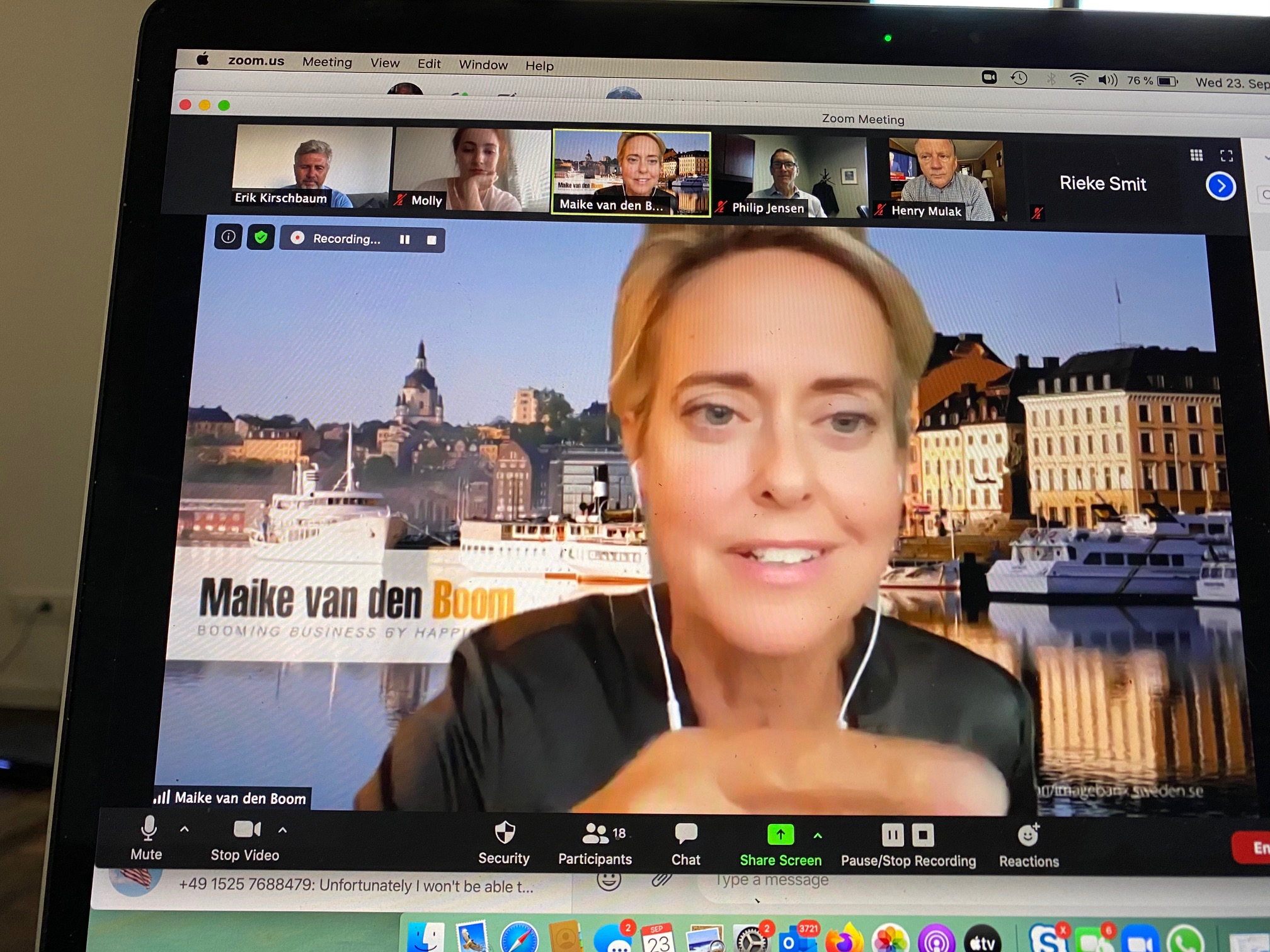
In an attempt to make the RIAS zoom talks more attractive and hopefully more accessible to even more alumni and candidates, the length was shortened to 30 to 40 minutes in November from 60 to 70 minutes. Most of the talks are recorded and later posted on the RIAS Berlin Kommission and the RTDNA RIAS Facebook pages as well as on a new RIAS YouTube page that we have created.
Here is a list of all the RIAS zoom talk speakers since April: Peter Beyer (CDU), Michael Gargiulo (WNBC, New York), Dr. Christoph Specht (RTL), Larry Miller (WUSA9, Washington), Nick Scheffler (University Minnesota), Matt Karnitschnig, Scott Libin (RTDNA chair, University of Minnesota), Stacey Samuel (Al Jazeera, Washington), Yami Virgin (Fox, San Antonio), Ainara Thiefenthaeler, Oezcan Mutlu (Greens), Mario Voigt (CDU), David Wagner (KLST, San Angelo, TX), Kenya Woodward (Tampa Bay, FL), Buzz Conover (Tucson, AZ), Ret. Lt General Ben Hodges, RIAS DJ Rik de Lisle, Peter Mücke (ARD Radio, New York), Peter Rough (Hudson Institute, Washington DC), Isabelle Koerner (NTV), Richard Roth (CNN), Andrew Ullmann (FDP), Juergen Klinsmann, Helge Fuhst (ARD), Andrej Hermlin, Basil Smilke (Democratic strategist, NY), Mark Murray (NBC political editor), Maike van den Boom (German author in Sweden), LaCrai Mitchell (CBS News, Florida), Anja Heyde (ZDF), Vladimir Balzer (DLRADIO), Tom Hawley (KSNV TV, Nevada), Charles Franklin (pollster Wisconsin), Jeff Mason (White House correspondent, Reuters), Gesa Eberl (RTL/NTV), Charlie Dent (former Republican congressman, Penn), Vince Duffy (Michigan public radio), Ryan Delaney (St Louis public radio), Oliver Sallet (Deutsche Welle, Washington DC).
The question of when in-person programs resume depends a lot on the conditions. As long as there are restrictions and limits on transatlantic travel still in place and as long as newsrooms in Germany and the United States do not allow external visitors or guests, it would be extremely difficult if not impossible to operate the RIAS exchange programs. So a lot will depend on when travel restrictions are ended and newsrooms open back up to external visitors.
November 5, 2020
The RIAS Berlin Commission would like to draw your attention to a call for story/podcast proposals from Goethe Institut for a new podcast called THE BIG PONDER. Many RIAS Berlin Commission alumni contributed audio pieces in 2018 that were part of the successful “Deutschlandjahr in the USA” series:
 In cooperation with radio stations and independent radio producers in the US and Germany the Goethe-Institut is launching a new podcast called THE BIG PONDER. The series will consist of 30 half-hour episodes in English that will be published every other week on Goethe.de, partners’ websites, Apple Podcasts, and Spotify. The Goethe-Institut also teamed up with the Public Radio Exchange (PRX) to make episodes available to all radio stations for broadcast in the USA, Canada, and Germany. The project will kick off in December 2020 and run through the end of 2021. The Goethe-Institut is now accepting proposals for audio pieces that will be published in 2021 and invites RIAS alumni and members of the broader RIAS community to contribute to the series.
In cooperation with radio stations and independent radio producers in the US and Germany the Goethe-Institut is launching a new podcast called THE BIG PONDER. The series will consist of 30 half-hour episodes in English that will be published every other week on Goethe.de, partners’ websites, Apple Podcasts, and Spotify. The Goethe-Institut also teamed up with the Public Radio Exchange (PRX) to make episodes available to all radio stations for broadcast in the USA, Canada, and Germany. The project will kick off in December 2020 and run through the end of 2021. The Goethe-Institut is now accepting proposals for audio pieces that will be published in 2021 and invites RIAS alumni and members of the broader RIAS community to contribute to the series.
Producers will explore their topics through the lens of transatlantic relations: do the US and Germany share the same values? What divides us? What unites us? In these times with much uncertainty, pondering abstract ideas reveals new aspects of society and allows us to create new connotations. We suddenly reflect on once clearly-drawn social lines in new and different ways. Possible topics for THE BIG PONDER range from silence, independence, happiness, the early days of television, the South, romance, being 16, and flaneurs. The common thread that runs through the entire series is the transatlantic perspective through which these topics are viewed.
Germany share the same values? What divides us? What unites us? In these times with much uncertainty, pondering abstract ideas reveals new aspects of society and allows us to create new connotations. We suddenly reflect on once clearly-drawn social lines in new and different ways. Possible topics for THE BIG PONDER range from silence, independence, happiness, the early days of television, the South, romance, being 16, and flaneurs. The common thread that runs through the entire series is the transatlantic perspective through which these topics are viewed.
If you are interested in participating, please send an e-mail to Savannah Beck (Savannah.Beck@goethe.de) with a link to one of your radio/podcast pieces and ideas for possible topics by December 31, 2020. We will review the submissions and respond to applicants individually. Feel free to contact Savannah Beck with any questions or concerns regarding THE BIG PONDER.
Here are links to the Big Pond podcasts in 2018.
October 19, 2020

Jeff Mason is a Reuters correspondent who has been covering the White House since 2009. He was also the president of the White House Correspondents’ Association in 2017. He recently gave this talk about covering the White House in the final weeks of the campaign: Previously he worked for Reuters in Frankfurt and Brussels from 2000 to 2008. He has met with several RIAS groups of German journalists in Washington DC over the years. He also teaches political journalism at Georgetown University. His talk will be at 4 p.m. Berlin time (10 a.m. EST) on Tuesday, October 20.

October 14, 2020
Weekly RIAS talks focus on November U.S. elections
In the run-up to the U.S. elections on November 3, RIAS Berlin Commission has been and will continue holding a series of talks each week with experts and RIAS alumni from many of the key battleground states such as Florida, North Carolina, Nevada, Wisconsin and Michigan. The talks will also include German TV anchors who will be covering the election. The goal of the talks is to provide an exchange of information about some of the finer points of the important states that decided the 2016 election and where polls show they could again be the pivotal states in the 2020 elections.
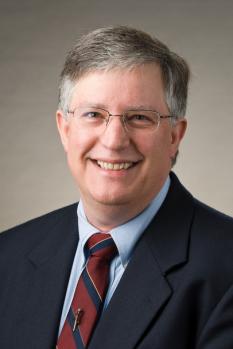
The next talk on Wednesday, October 14 will feature Charles Franklin, a political scientist at Marquette University who will talk about the situation in Wisconsin. Wisconsin was part of the “blue wall” that had voted for Democrats in every election from 1992 to 2012 before shifting in 2016 to the Republicans. The midwestern heartland state has been the focus of both parties and pollsters across the country ever since. Franklin, who is a regular guest on PBS TV in Wisconsin, helped establish Marquette as an important source for information concerning public opinion in Wisconsin.
The talk takes place at 6 pm (Berlin time) or 12 noon EST on Wednesday, October 14. Please write to info@riasberlin.org for details about logging in.
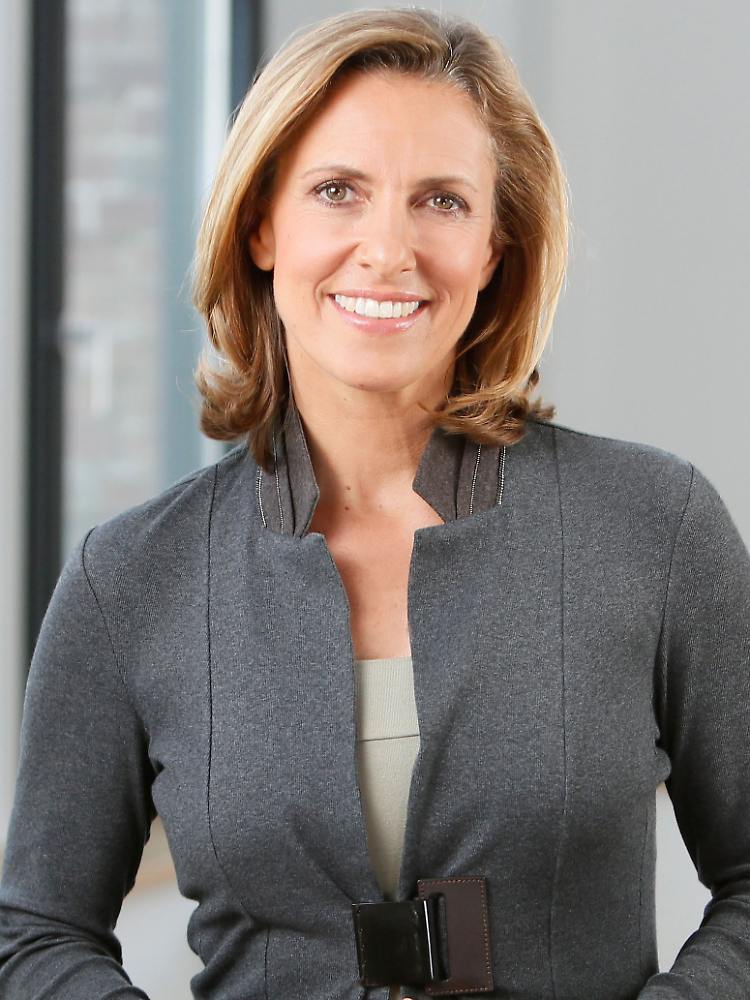
One week later on October 21, Gesa Eberl from the RTL/NTV network in Cologne will be talking about the US election coverage in Germany and the impact of the elections on Germany and Europe. ┬áEberl was a US correspondent for RTL/NTV for three years from 2004 to 2007 and will be the co-anchor of RTL’s U.S. election coverage on November 3-4. She is also a RIAS alumni and a active member of the RIAS Cologne alumni chapter. She has given several talks to US journalists visiting Germany on RIAS programs. Her talk will be at 6 p.m. Berlin time (12 noon EST).
And on October 28, Vince Duffy of Michigan Radio will be talking about the situation in Michigan – another important Midwestern state that flipped from the Democrats’ to the Republicans’ electoral college column in 2016 and has been a focus of attention ever since. Duffy, a RIAS alumni and former chair of the RTDNA, has been the news director of Michigan Radio since 2007 and will be talking about the issues in Michigan. His talk will be at 6 p.m. Berlin time (12 noon EST).
Recent RIAS zoom talks have also featured RIAS alumni Tom Hawley of KSNV TV in Las Vegas for a talk about the situation in Nevada, as well as a talk one week earlier with LaCrai Mitchell of CBS News who spoke about her coverage of the elections in Florida and North Carolina. Other recent speakers talking about the election included Mark Murray, Senior Political Editor at NBC News in New York and Peter Rough of the Hudson Institute in Washington. Before that, RIAS alumni David Wagner, the news director of KLST TV in San Angelo, Texas, talked about the situation in Texas in light of rising number of coronavirus cases and was joined by RIAS alumni Kenya Woodward, a freelance journalist in Tampa Bay, Florida, as well as Buzz Conover, a reporter at Arizona Public Radio in Tucson, Arizona.
September 28, 2020
Legendary RIAS Berlin station week host TC Colones passes away
Tom Colones, a RIAS Berlin Commission alumni from 1997 who hosted more than a dozen of German journalists at his WSPA Channel 7 station in South Carolina, has died after working
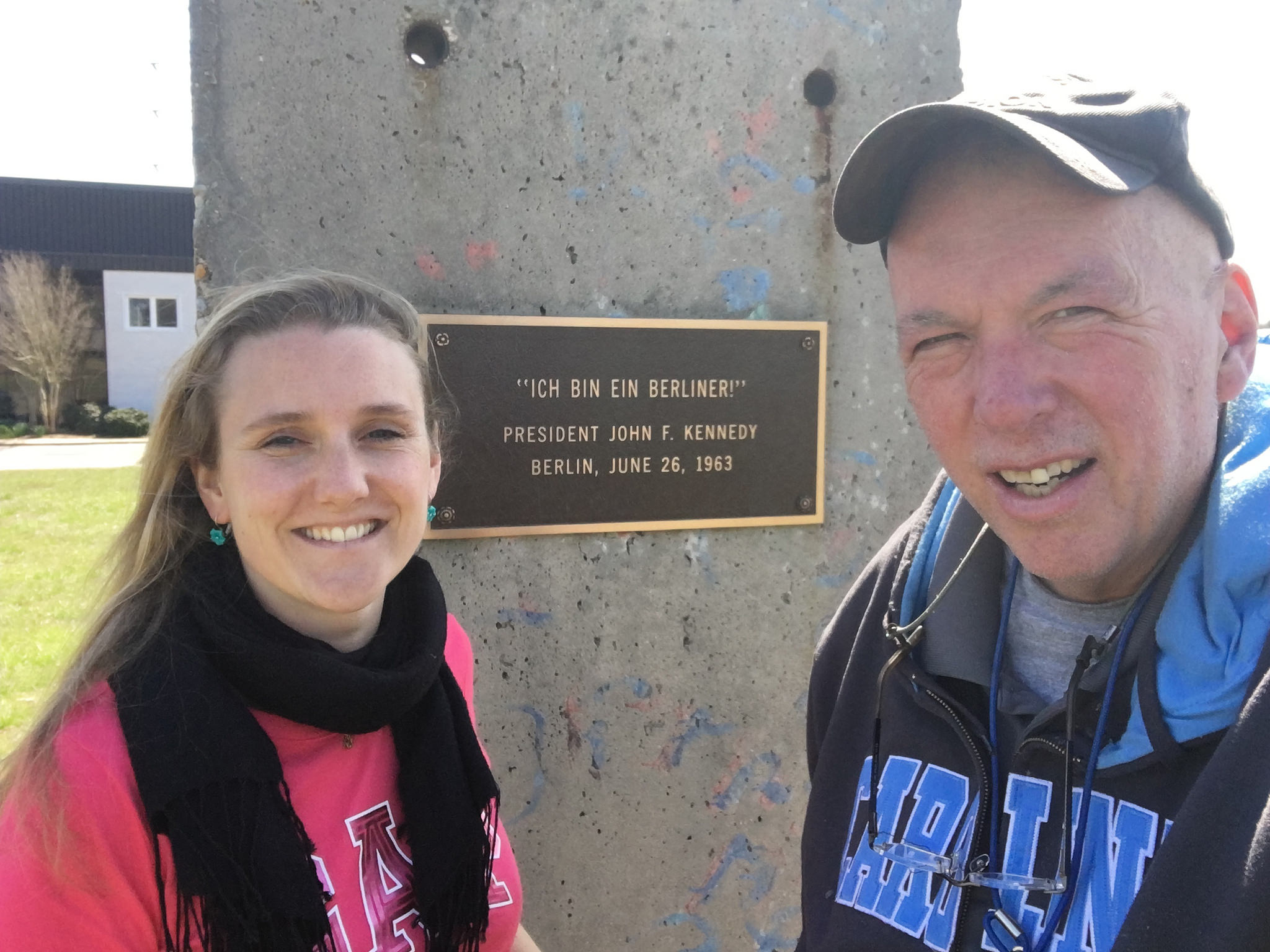
at the station in Spartanburg for 44 years, the station announced on Sunday. Known as “TC”, Colones eagerly volunteered to host German journalists for their “station week” during their RIAS exchange programs twice each year over the last two decades.
“And do have some sad news to pass along tonight from our WSPA family,” station WSPA reported on Sunday. “Photojournalist Tom Colones passed away this weekend at his home in Spartanburg. Tommy, lovingly known to many as ‘TC’, was a staple in the newsroom here at Channel 7 and throughout the community. His work is responsible for bringing you, our viewers, hundreds if not thousands of stories from his 44 years of work here. He was part of our weekend team and was integral ….. ‘TC’ was also a veteran and had an affinity for WW2. He visited Normandy yearly on D-Day and of course he made many friends along the way. His smile was infectious, his stories memorable and his loyalty unwavering. We will miss Tommy dearly and our hearts go out to his family, friends and all who are feeling his loss.”
Colones was a larger-than-life friend of the RIAS Berlin Commission who regularly went far and above the call of duty to make sure the German journalists got the most out of their Station Week experiences in South Carolina. Some of those he hosted included: Andreas Wiese (ZDF), Louisa Maria Giersberg (NDR), Laura Goudkamp (BR), Maria Regis (MDR), Mirja Fiedler (NDR), and Vanessa Luenenschloss (BR). Colones also recruited five fellow Channel 7 staffers to take part in the RIAS exchange programs in Europe, including Heather Sullivan.
“He was my host (in 2019) and the kindest person you could imagine,” said Maria Regis. “When he picked me up from the airport, he greeted me with a huge gift basket full of groceries. He was eager to make my visit at his station WSPA TV as interesting and comfortable as possible. He arranged for me to meet all of his co-workers and accompany some of them when they did their news stories. We also did some fun interviews together and he showed me around the Spartanburg area….He stressed multiple times that he wanted to host as many German journalists as possible since his exchange with the RIAS programme in 1997 had given him so much. He always wanted to give back. Some of the last things he texted me were about his plans to come to Germany and visit all of the journalists he had hosted. I am sad he never got to do that. I am so grateful to have met him and deeply sad that he passed away.” Louisa Maria Giersberg added: “He was a great colleague and a wonderful mentor – as my RIAS-host in Spartanburg he did everything to make my stay there as interesting and fulfilling as possible…. I learned a lot about American news broadcasting. TC was a kind and gentle giant, always smiling, always interested in others… his death is an enormous loss.”
Colones took part in one of the very first RIAS programs to Germany in the Fall of 1997 and stayed in contact with many of the other alumni on his program. He was a regular donor to the RIAS alumni program as well, helping the organisation to raise funding for future fellows.
“Thanks for the opportunity to again allow me to host another fantastic RIAS journalist,” Colones wrote in an email after one recent hosting of a German journalist. “It’s something I and our members of the newsroom look forward to these last many years . I go and pick them up in the morning or whenever my day starts and always make sure I am with them, or if they want to go out with a certain reporter. We always have dinner together at night┬ to talk about the day or if they want to experience something in our county. They are my guests and I do all I can to make them feel more than welcome here. I always make sure to give them access to all our station has to offer: meetings , talking with fellow journalists at the station – and they get to see editorial meetings. For me, this is a joy and something I look forward to! I have learned much from my guests. I have been so lucky to have hosted so many great German journalists over the years and I have kept in touch with many of them. It’s great to see where they are in their daily lives since their time here.”
September 8, 2020
RIAS Berlin Zoom Talk with Berlin swing band that’s fighting coronavirus blues
Andrej Hermlin and his Swingin Hermlins hosted the RIAS Berlin alumni chapter and the weekly RIAS Zoom Talk during his livestream living room concert on September 6. Following the band’s nightly 35-minute livestream performance, Hermlin and members of his band spoke with a dozen journalists on the RIAS Berlin Commission Zoom talk from across the United States as well as with a group of 12 RIAS alumni from Berlin.
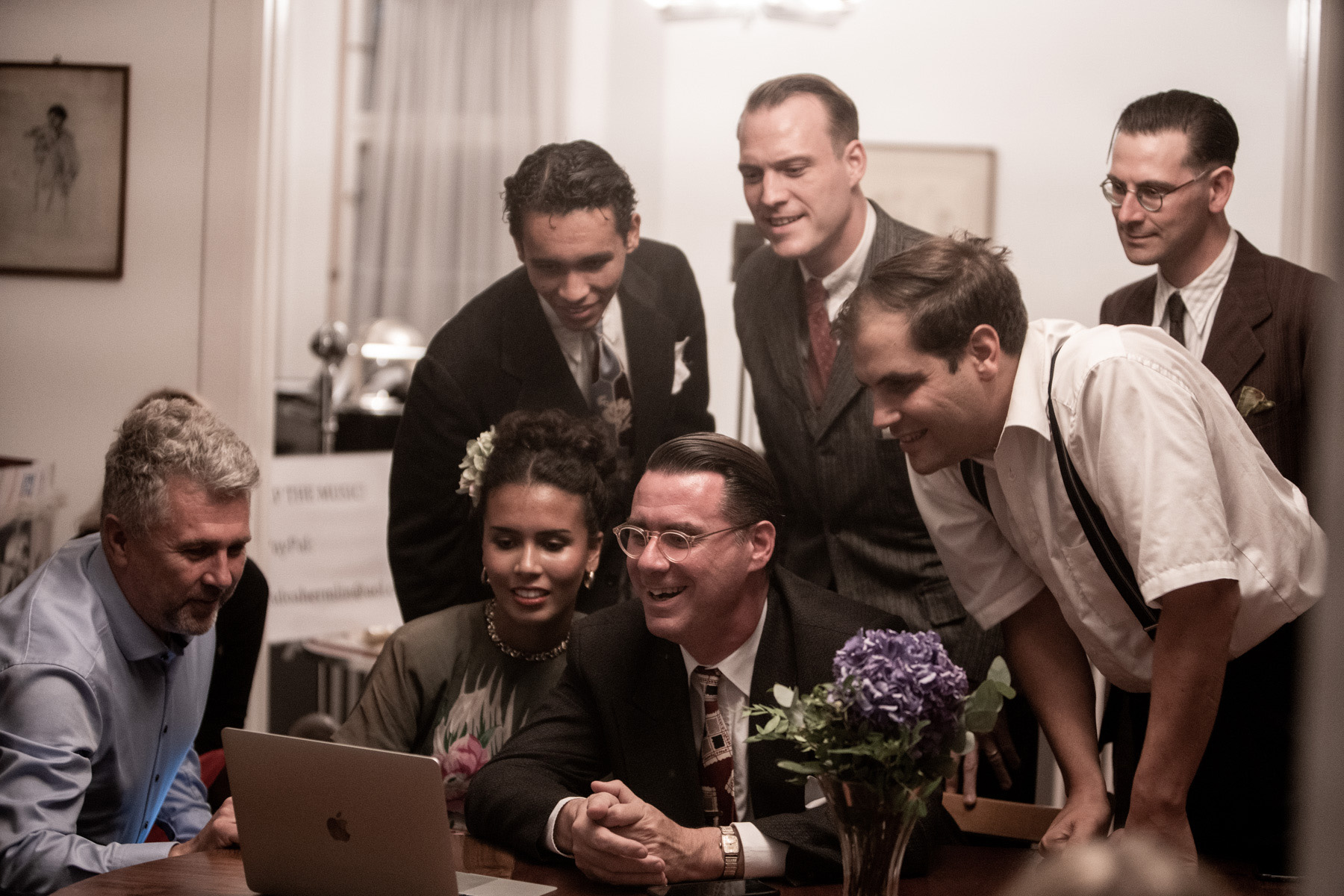
The band plays 1930s era swing style big band music and celebrates the original music from the United States in their livestream shows. Hermlin explained that he was worried the coronavirus pandemic shutdown would destroy the music and entertainment industry so he and his band decided to fight that by playing their livestream concerts every evening until the crisis and its economic ravages passes — even if it takes several years.
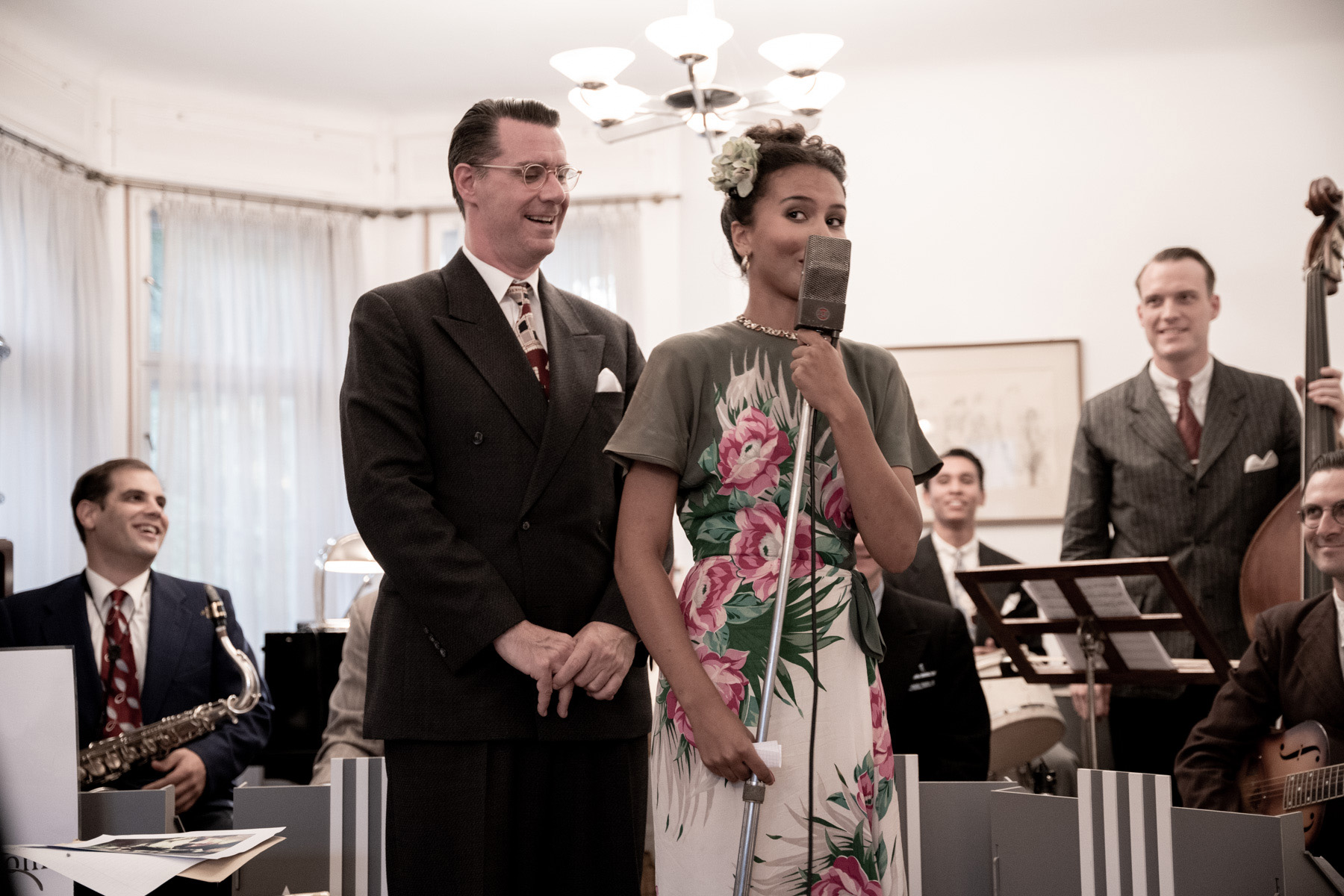
“Many musicians in Germany are still shocked, they’re scared and confused” when the coronavirus forced the cancellations of all concerts in mid-March, said Andrej Hermlin, adding he had realised he wanted to be a musician as a three-year-old child after listening to a Bennie Goodman record. “I just felt that sitting at home waiting for the hone to ring or waiting for the government to give me money was not really the right way forward. I’m not an American but I think I am completely American when it comes to this kind of thing, the music business.”
His band has done 220 shows in the last six months — sometimes up to three or four per day.
“I just felt the only chance we had was to continue playing and create an invisible bridge to places in Peru, Columbia, the United States, China and Denmark,” Hermlind added. “Our first show was on March 15. We just played and tried it out, and we saw there were 10,000 viewers within an hour. This was the moment that I felt we were on the right path and doing the right ting. It’s about not becoming hopeless and give hope to others. If you recall the music of the 1930s, it was music of hope and it’s the same thing today. We see so many comments ‘you’re the only hope you have’ or ‘we’re waiting all day for 7 pm’. We’re getting comments like this all the time and it’s really encouraging us.”
Hermlin said the band also plays several concerts a week at outdoor theatres and on streetcorners in Berlin for tips — as a way to connect with music-hungry audiences, to keep the musicians playing and earning some tip income and to keep up the spirit of the swing band era.
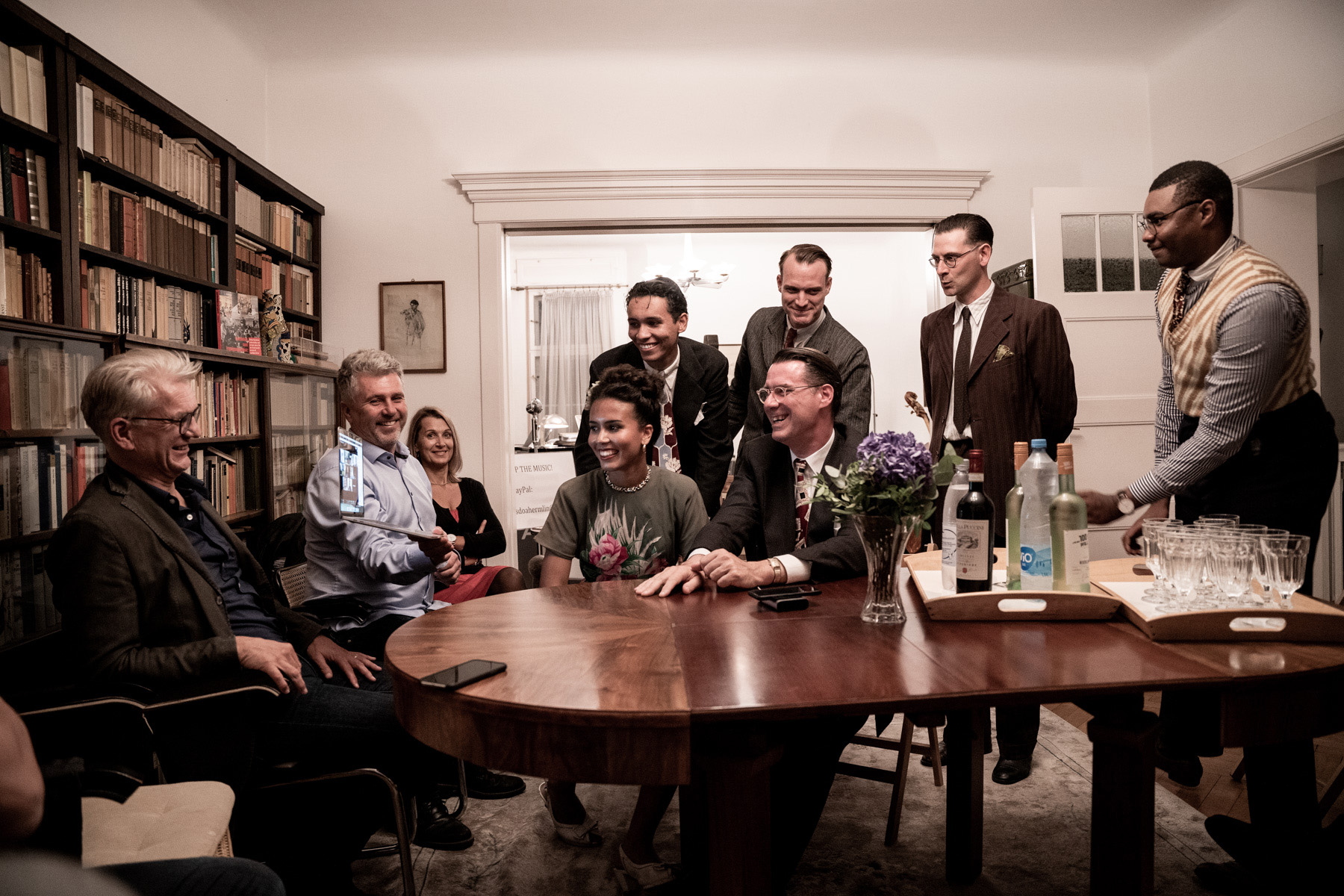
Hermlin fielded questions from American alumni during the Zoom talk from his living room/dining room concert stage area. He and his children Rachel Hermlin, the band’s vocalist, and David Hermlin, drums and vocals, were fascinated to see some of the American alumni driving their cars while taking part in the Zoom talk. He also fondly recalled some of his concerts in the United States, including the Rainbow Room in New York City, in the past.
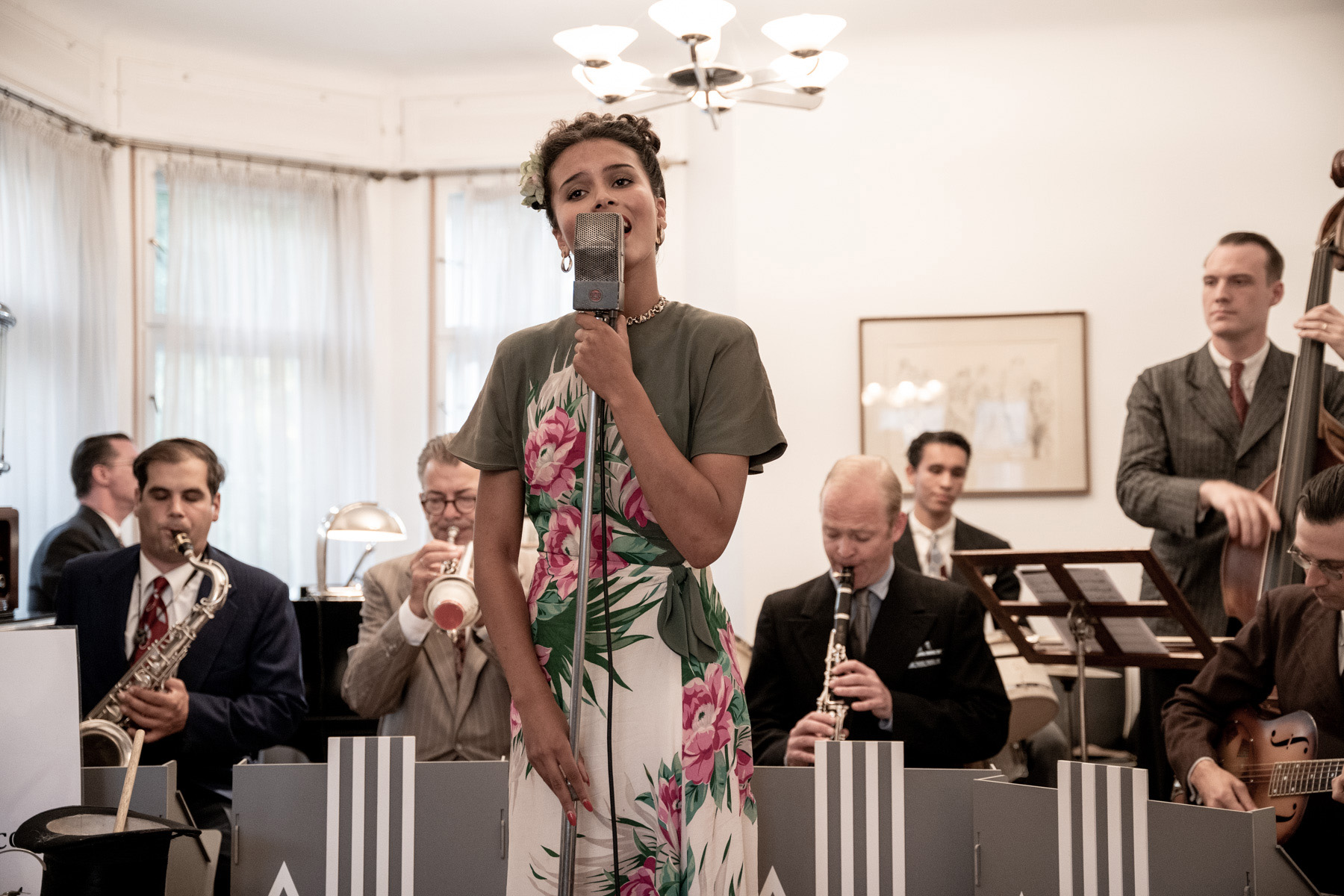
The band has already put on 175 livestream shows since they began playing every evening on Instagram and Facebook live every evening in mid-March. He expects there will be a 500th and even a 1,000th show before the crisis is over. Aside from that, the indefatigable band plays three, four and sometimes even five concerts per day on weekends in Berlin — from the street corner of Kollwitzplatz square to the Rose Garden in the Pankow Burger Park to the Orange Room in the Ellington Hotel.
September 1, 2020
Berlin Alumni Chapter meets for Zoom Talk & mini reunion in Berlin

Fifteen members of the Berlin alumni chapter of the RIAS Berlin Commission met for an informal and socially distanced meeting recently for a RIAS Zoom talk with top ARD editor Helge Fuhst.
The journalists from Berlin-area networks such as RBB, Deutschlandradio, Deutsche Welle, and Reuters TV first took part in the lively Zoom talk with Fuhst and then got together for their second outdoor meeting on the terrace of a Berlin restaurant near the Central Train Station to talk about their work during the coronavirus crisis, the changes this has caused to journalism, the coverage of recent large demonstrations in Berlin, as well as the U.S. election in November.
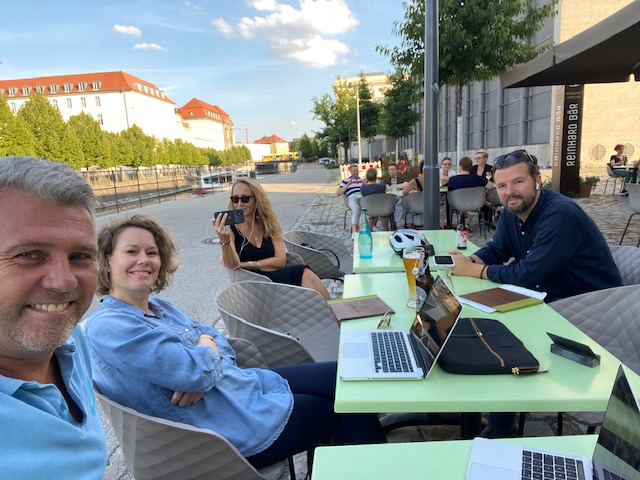
Many of the alumni expressed how enjoyable it was to talk once again with other journalists after nearly a half-year of working largely from home or away from their central studios. Several spoke about how important it was becoming to have avenues to talk with other colleagues, many of whom are in similar situations, and said they hoped the RIAS alumni meetings could continue on a monthly basis in the months ahead.
While it is still far from clear when RIAS exchange programs may resume, there will continue to be weekly, hour-long Zoom Talks for all RIAS alumni and friends with guest speakers from the United States and Germany . The Berlin alumni chapter expressed interest in the idea of trying to hold a special one-day Zoom Talk seminar on the U.S. election with perhaps five or six guest speakers and election experts from the United States — perhaps in October just prior to the November 3 election.

There was also recent zoom talk with two Oregon Public Broadcasting journalists who have been covering the protests and violence in Portland — RIAS alumni Conrad Wilson and his OPB colleague Jonathan Levinson. They both expressed their thanks for the interest of the more than a dozen RIAS alumni taking part from around the world and said the hour-long talk was a welcomed chance to talk about Portland with colleagues in different places.

The Zoom talks will continue this week with a special 90-minute session with Berlin swing band leader Andrej Hermlin and his band — they will first play a 30-minute livestream concert from Hermlin’s living room in Berlin just as they have been doing every single evening at 7 p.m. Berlin time since the coronavirus crisis forced the cancellations of all the band’s gigs. After the livestream session, Hermlin will spend an hour talking with RIAS alumni in the United States and Germany via Zoom.
Please sign up or request more information about the talk at info@riasberlin.org. Here is a recent story on ZDF television about the band’s depression-defying street corner concerts and livestream performances. And here is a story that appeared in the Los Angeles Times about Hermlin and his band.
August 14, 2020
Klinsmann meets RIAS alumni, candidates in virtual Zoom Talk
 Former USA and Germany soccer coach Jürgen Klinsmann talked to a group of 35 RIAS alumni and candidates for future programs in a lively RIAS Zoom conversation on Thursday, August 13. It was an open and wide-ranging discussion and Klinsmann was eager to hear from the journalists in the United States and Germany concerning their views on news and news sources these days as well. He also talked about his coaching experiences in the United States and Germany, and about the development of soccer in the United States over the last 22 years in which he has lived there. Klinsmann fondly recalled his meeting with a group of RIAS journalists from U.S. universities on the summer exchange program in 2019.
Former USA and Germany soccer coach Jürgen Klinsmann talked to a group of 35 RIAS alumni and candidates for future programs in a lively RIAS Zoom conversation on Thursday, August 13. It was an open and wide-ranging discussion and Klinsmann was eager to hear from the journalists in the United States and Germany concerning their views on news and news sources these days as well. He also talked about his coaching experiences in the United States and Germany, and about the development of soccer in the United States over the last 22 years in which he has lived there. Klinsmann fondly recalled his meeting with a group of RIAS journalists from U.S. universities on the summer exchange program in 2019. 
Klinsmann said he especially enjoyed seeing the “RIAS community” holding together with so much enthusiasm in these Zoom Talks during the coronavirus pandemic and said he was looking forward to another meeting with RIAS journalists and alumni, either in-person or on Zoom.
Peter Rough, a senior fellow at the Hudson Institute in Washington DC, gave an interesting talk on Wednesday, August 12 about the U.S. election campaign and transatlantic issues. Rough explained that a lot could still happen in the remaining 11 weeks of the U.S. election campaign and the issue was still far from being decided. The poll numbers could change abruptly, for instance, he said if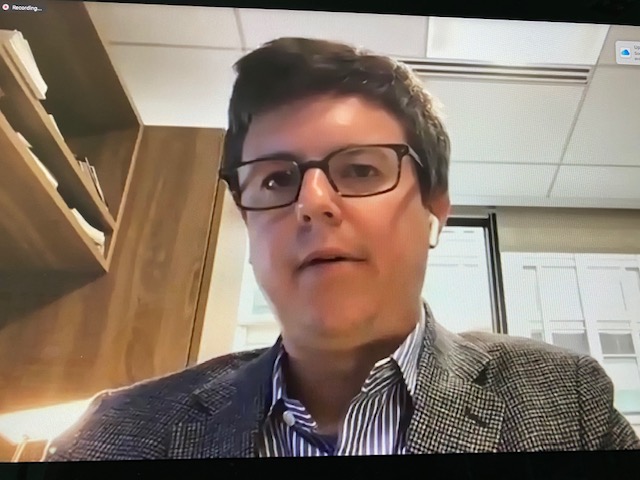
there were a sudden improvement in the economic outlook, frontrunner Joe Biden were to stumble on the campaign trail or if there were an external shock of some kind.
The next RIAS zoom talk is on August 19 with Helge Fuhst, editor-in-chief of Tagesthemen news broadcast. Please write to info@riasberlin.org for details on logging in.
August 11, 2020
Rough, Klinsmann, Fuhst & Portland journalists to hold RIAS Zoom Talks
The RIAS Zoom talks will continue this week and through August. There are two talks on tap this week with Peter Rough on Wednesday, August 12 and Jürgen Klinsmann (pictured below with RIAS group in 2018) on Thursday, August 13. Next Wednesday, August 19 we will have RIAS alumni Helge Fuhst, editor-in-chief of Tagesthemen, and on Wednesday, August 26 we will have Conrad Wilson, a RIAS alumni, and his colleague Jonathan Levinson of Oregon Public Broadcasting who have been covering the unrest in Portland in recent weeks.
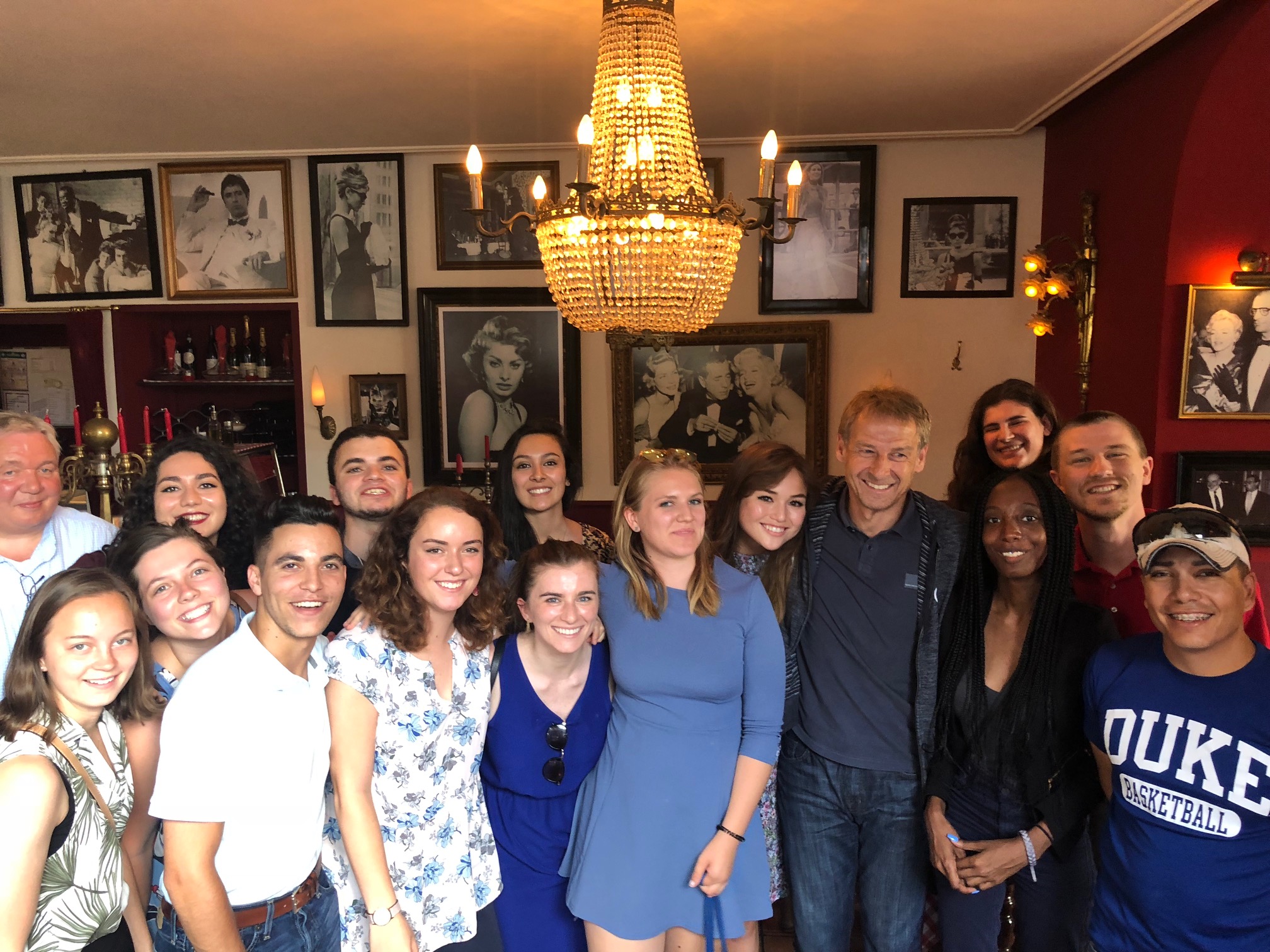
RIAS Zoom Meeting with Peter Rough, senior fellow Hudson Institute
Aug 12, 2020 05:00 PM Berlin, 11 am Washington DC
Peter Rough, a senior fellow at the Hudson Institute in Washington DC and native of Des Moines Iowa, will be talking about the U.S. elections and its impact on transatlantic relations. Peter is a member of the RIAS board and based in Washington DC. He began his career at the Republican National Committee specializing in political research. From 2007 to 2009 he served as an associate director in the White House Office of Strategic Initiatives. Here’s more on Peter:
Please write to info@riasberlin.org for the log in information for our RIAS zoom talks
August 7, 2020
McGinley of WKMG-TV in Orlando running for RTNDA Chair-Elect
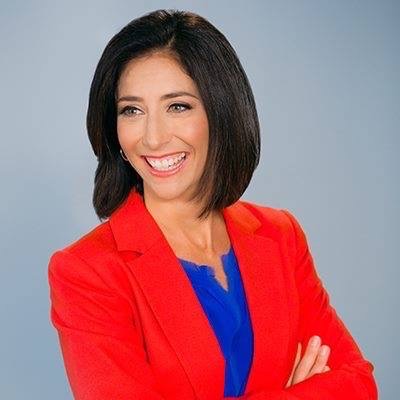 Allison McGinley, News Director at WKMG-TV in Orlando, Florida, is running for the position of Chair-Elect of the Radio Television Digital News Association (RTDNA board), which calls itself the world’s largest professional organization for broadcast and digital journalism. It is also RIAS’s partner (www.rtdna.org) in the United States and has been an important avenue for American fellows to take part in RIAS programs to Europe over the years.
Allison McGinley, News Director at WKMG-TV in Orlando, Florida, is running for the position of Chair-Elect of the Radio Television Digital News Association (RTDNA board), which calls itself the world’s largest professional organization for broadcast and digital journalism. It is also RIAS’s partner (www.rtdna.org) in the United States and has been an important avenue for American fellows to take part in RIAS programs to Europe over the years.
The other candidate is David Wagner, tNews Director at KLST/KSAN in San Angelo, Texas, The RTDNA elections start on August 11 with 30-days of on-line voting that runs to September 12.
The RIAS Berlin Commission caught up with McGinley to ask her about her candidacy and the role that RIAS plays in RTNDA:
Question: Why do you want to become the RTDNA chair-elect?
McGinley: As News Director since 2015, I have led my newsroom using three bedrock tenets: empower our journalists in all positions, protect their First Amendment rights, and foster a culture designed to mentor and grow each team member. 2020 has been an incredibly trying and tragic year, but I believe these challenges are, in fact opportunities to advance our industry. I believe it is within the power of RTDNA, a renowned organization with a storied history, to support and encourage newsrooms to nurture more diversified teams and to help news leaders understand how to take measure of each individual in their organizations to ensure their viewpoints and experiences is heard. I want to be among the leaders in our industry leading the effort to protect those who fight daily to provide the facts to their community despite the vitriol and retribution they may face. And most importantly, I want to ensure that RTDNA continues to be the leader in mentoring our future generations of journalists. We have nothing left to defend if we do not teach, if we do not lead, if we do not safeguard our future.
Question: What does the RTDNA chair do?
McGinley: I could tell you what the bylaws state and which can be found on RTDNA.org, but I prefer to share with your membership and your readers what I believe to be the role of the chair. I firmly believe the chair should be the touchstone to the industry and the one who assists the exemplary RTDNA staff in maintaining the direction and purpose of the world’s largest professional organization devoted exclusively to broadcast and digital journalism. The chair, who is in the trenches of their own newsroom day to day, helps to guide his or her peers on the board to ensure meetings and decisions are laser-focused on shared goals and experiences within the industry, protects those plans and priorities determined by the board, and then most importantly, guarantees those strategies are executed.
Question: What are the challenges facing RTDNA?
McGinley: I believe the challenges facing RTDNA are the same as those facing today’s journalist. There are pervasive funding problems creating a dearth and, in some places, even a desert of local news. For each technological innovation that enhances journalism there is another that threatens our credibility by creating fraudulent content that spreads like wildfire. But I believe the fundamental challenge we must conquer is maintaining our First Amendment rights. In recent months, we have witnessed the arrests of journalists during protests, the removal of journalists from confrontational situations, law enforcement demanding raw and unpublished images and judges concurring. We fight for and defend the First Amendment because it is the cornerstone of our democracy- our communities, our citizens, our neighbors. We cannot protect our communities if we do not fight to retain our rights to ask questions, demand answers and stand up to those who may take advantage of power.
Question: What do you bring to the table? What do you think you could do better or to improve it?
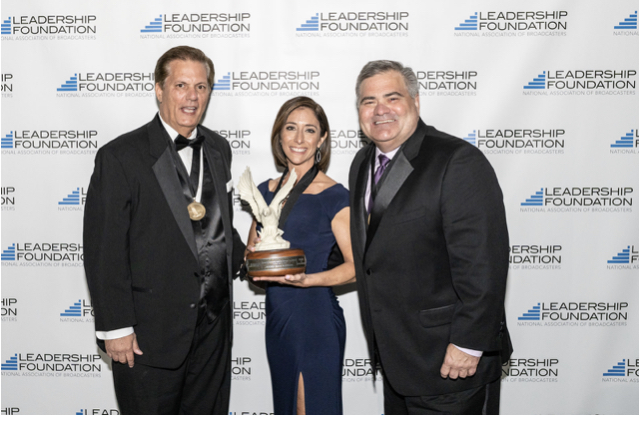 McGinley: I bring to the table my 26 years in this industry, but I also bring my compassion and my humanity. I have led my newsroom in Orlando, Florida through countless national news stories: from the horrific mass murder that took the lives of 49 of our neighbors to multiple dangerous hurricanes, and the current pandemic which has wreaked havoc on our communities and our tourism industry. We have also had many opportunities to celebrate milestones in Central Florida. I led a 3-year initiative that resulted in Florida legislators voting in a texting while driving ban. We partnered with Amazon and Google to create the first-ever livestream direct-to-mobile event at Orlando’s annual 4th of July fireworks in 2019. And just two months ago, I guided WKMG’s successful strategy to provided more than two dozen live vantage points as SpaceX and NASA, for the first time in nearly a decade, launched Americans into space from our own Central Florida backyard. Through all of those stories and many more, I believe my team would tell you my leadership is grounded in several areas from which RTDNA would benefit: solid, effectual planning for both long and short-term goals; innovation not for the sake of the gee-whiz factor but for the benefit and experience of the audience; and most importantly, a perpetual eye on the growth and professional development of every member of our team. I know I can parlay those newsroom leadership skills and characteristics into effective leadership of this revered association.
McGinley: I bring to the table my 26 years in this industry, but I also bring my compassion and my humanity. I have led my newsroom in Orlando, Florida through countless national news stories: from the horrific mass murder that took the lives of 49 of our neighbors to multiple dangerous hurricanes, and the current pandemic which has wreaked havoc on our communities and our tourism industry. We have also had many opportunities to celebrate milestones in Central Florida. I led a 3-year initiative that resulted in Florida legislators voting in a texting while driving ban. We partnered with Amazon and Google to create the first-ever livestream direct-to-mobile event at Orlando’s annual 4th of July fireworks in 2019. And just two months ago, I guided WKMG’s successful strategy to provided more than two dozen live vantage points as SpaceX and NASA, for the first time in nearly a decade, launched Americans into space from our own Central Florida backyard. Through all of those stories and many more, I believe my team would tell you my leadership is grounded in several areas from which RTDNA would benefit: solid, effectual planning for both long and short-term goals; innovation not for the sake of the gee-whiz factor but for the benefit and experience of the audience; and most importantly, a perpetual eye on the growth and professional development of every member of our team. I know I can parlay those newsroom leadership skills and characteristics into effective leadership of this revered association.
You have been the Region 13 director on the RTDNA board for 2 years. Where exactly is Region 13? What have you learned from that experience?
McGinley: Region 13 covers Florida, Georgia, Puerto Rico and the Virgin Islands. In my time as Director, I have had numerous conversations with varied groups of individuals from newsroom leaders to those who are just beginning their careers. The leading concern they express is usually focused on ethical and legal issues because as I said before protecting their First Amendment rights is routinely in the forefront of their minds. In fact, a young journalist once told me, ‘if you pay more attention to ethics than job security, positive opinion of the media and protected First Amendment rights will simply follow.’ They regularly remind me of the importance of training and continued education found in weekly webinars, robust newsletters, and more importantly, reasonably priced conferences. Journalists I speak with always make a point to emphasize the growth of and health of RTDNA as a whole. It is their hope that the organization continues to look at how partnering with other industry organizations can help to reach, support, and inspire more journalists. Once elected, I will be guided by those priorities of our members.
Question: How important is the RIAS fellowship for RTDNA?
McGinley: Journalism is a global mission and sharing our knowledge is crucial to ensuring our collective future. This is an intersection of two principles I mentioned earlier: empowerment and mentorship. Empowering inquiring journalists to learn from those who are different allows for growth in empathy and expertise.
Question: Do you think there are ways RTDNA and RIAS can deepen and strengthen their ties? Going forward, for instance, all RIAS fellows will be required to join RTDNA for at least one year. What else could we do?
McGinley: The key to any fruitful partnership is an understanding of shared priorities and goals. While the two agencies may be a world apart geographically, the goals each hold are similarly rooted in strengthening reporting skills and growing the next news leaders. An RTDNA membership is just the entry to exposing RIAS members to any of the training, ethical guidelines, and industry connections they may be interested in pursuing.
Question: Why do you think relatively few RTDNA members know about RIAS? Is there any way to fix that?
McGinley: I believe exposure could be a shared priority for both organizations. Regular messaging, especially at critical times of application, through RTDNA’s expansive network of members could be of assistance. A handshake-style social media campaign can always provide a boost. And spotlighting member trips through video and sound is always a compelling way to drive interest. Of course, college campuses are often the best driver of engagement as today’s youth are driven by experiences and creating memories.
Question: Do you think International exchanges like this are beneficial to US journalists?
McGinley: As journalist we are self-proclaimed life-long learners. What could be better than connecting inquisitive minds around the globe?
Question: You have been working as a journalist in Orlando for 26 years. Has that experience helped prepare you for the chair-elect?
McGinley: I would love for your readers to look at my website www.AllisonMcGinley.com to help them learn more about me, my experiences and my leadership foundation. As I have said many times before, not many are lucky enough to achieve their dreams in their hometown, so I have made it my mission to recognize the importance of sharing stories critical to our community, to be of service to those living here and protect the rights of our journalists to share those stories. As a News Director and as a current RTDNA Director, I know to my core we must empower our communities and their people. We must protect their stories. We must mentor those dedicated to the mission of guarding the truth.
August 5, 2020
RIAS alumni Wagner running for RTDNA Chair-Elect

RIAS Berlin Commission alumni David Wagner is one of two candidates to become the Chair-Elect of the Radio Television Digital News Association (RTDNA board), which calls itself the world’s largest professional organization for broadcast and digital journalism. It is also RIAS’s partner (www.rtdna.org) in the United States and has been an important avenue for American fellows to take part in RIAS programs to Europe over the years. Wagner, the News Director at KLST/KSAN in San Angelo, Texas, was a RIAS fellow in 2019 and is now running to lead RTDNA, first as Chair Elect,a sort of Deputy Chair, and the following year as Chair. He is running against Allison McGinley, the News Director at WKMG-TV in Orlando, Florida. The RTDNA elections start on August 11 with 30-days of on-line voting that runs to September 12.
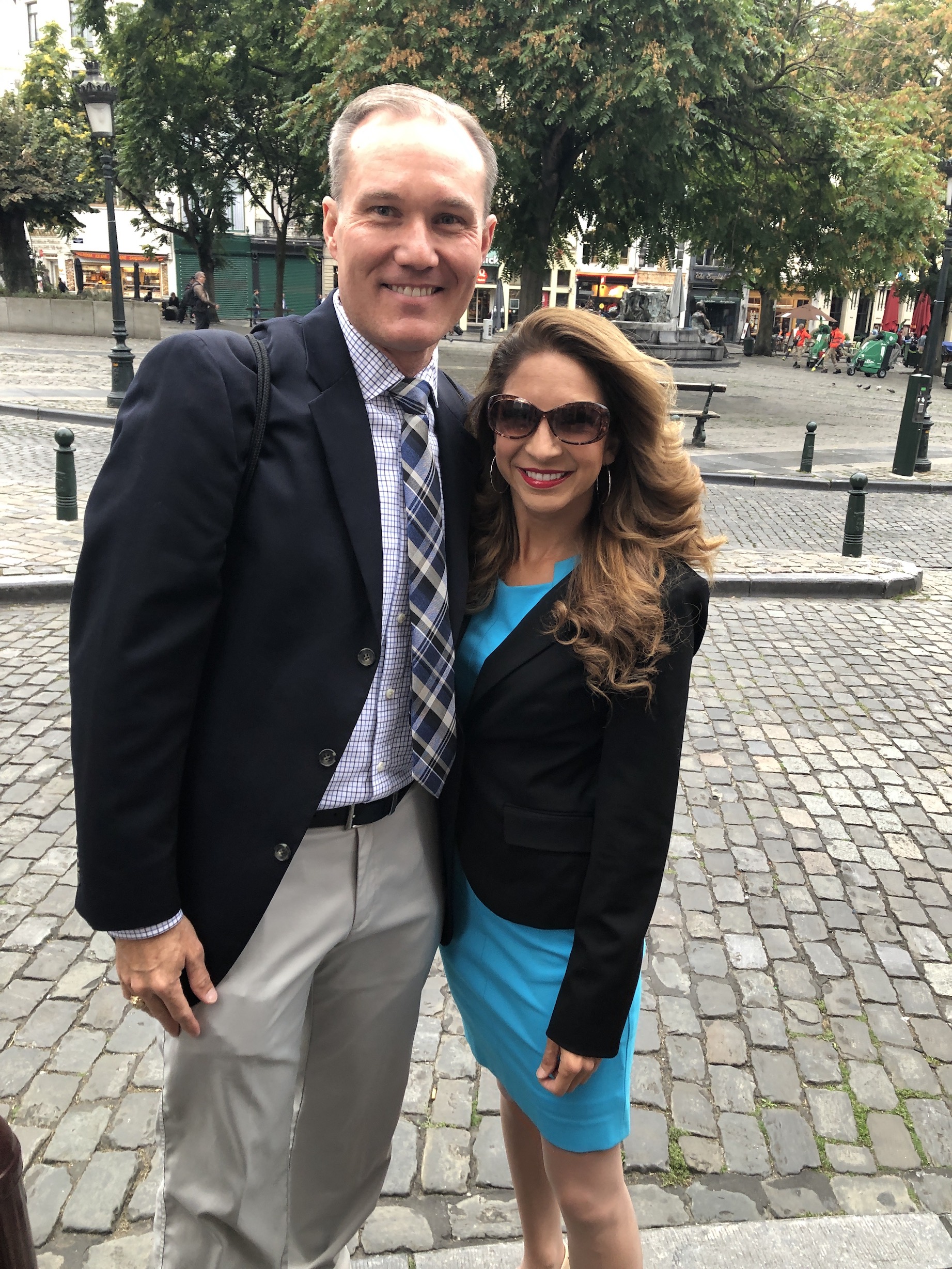
Question: You and Monica Quintero did a prize-winning TV series “Beyond Borders” during your RIAS fellowship. How did you guys find the time to do those stories while at the same time taking part in 3 or 4 program presentations each day
Wagner: I think Monica and I were prepared for the trip we had several discussions about ideas and stories we wanted to accomplish. We also didn’t sleep a lot…lol…we had a lot of late nights including the all night shoot we did the very last night we were in Berlin.
July 24, 2020
RIAS zoom talks with Isabelle Körner from NTV and former RIAS DJ Rik De Lisle
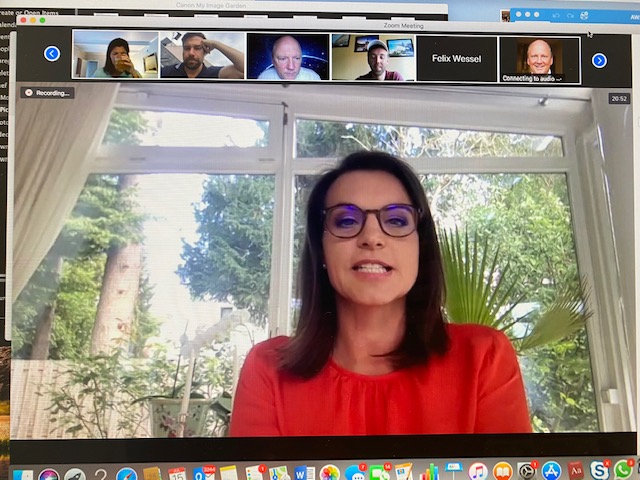
Isabelle Körner of NTV and former RIAS DJ Rik De Lisle held lively RIAS Zoom talks in the last two weeks. Körner spoke about the way the coronavirus has changed her work on an all-news German TV station in Cologne as well as her life. She also spoke about the impact the RIAS program in 2019 and especially the station week in San Antonio, Texas had on her life — and increased her understanding and appreciation of the United States.
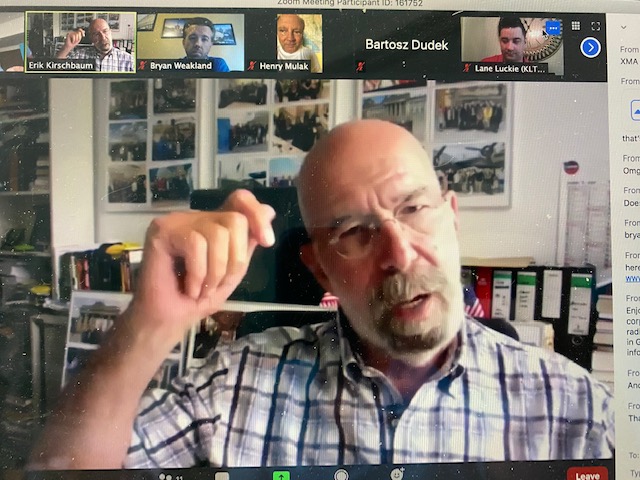
De Lisle, who was a legendary DJ in West Berlin during the Cold War era and after, spoke to a RIAS zoom group about his experiences as a DJ at the AFN (American Forces Network) in Thailand, Portugal and West Berlin before he switched to RIAS in the mid-1980s. He was recruited by one of the managers of RIAS and after De Lisle protested that he couldn’t speak German, the RIAS manager said he only need to learn four German words at first to be able to work as a DJ: “Das ist…” (That is..) and “Das war….” (That was) before announcing the name of the band.
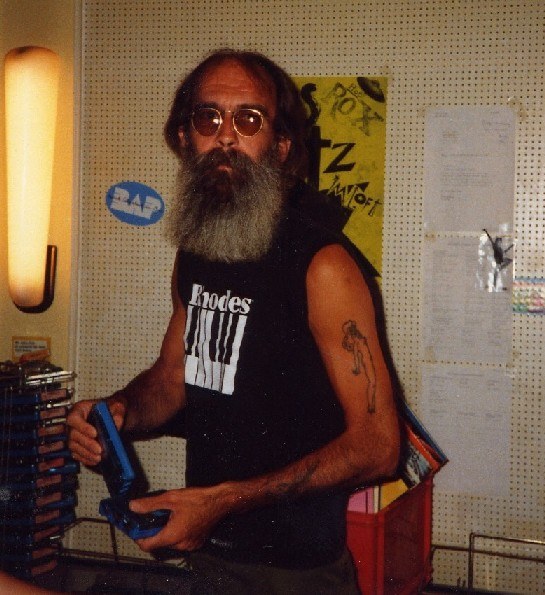
For those of you who missed them, you can see the recordings of those hour-long talks on RIAS Berlin Kommission and RTDNA RIAS facebook pages. We have two more interesting talks coming up over the next two weeks and hope you can join us.
Wednesday, July 29, 1 p.m. EST (1900 Berlin time) – Please join us as we welcome special guest and CNN original Richard Roth hosted by NBC’s Adam Reiss. Richard is one of two CNN’ers who joined when the network went on the air in June of 1980. Since then he has literally covered the world. He is currently senior UN correspondent, having served since 1993 covering international crises including Iraq, North Korea, Bosnia and Iran. For 12 years he hosted Diplomatic License, CNN’s global affairs program devoted to coverage of the United Nations. On September 11th Roth was reporting from the World Trade Center when the towers fell. From 1991-1992 Roth covered the Gulf War and was portrayed in the HBO film Live From Baghdad. In 1990, Roth covered the opening of the Berlin Wall and the overthrow of communist governments in Eastern Europe.
Adam Reiss is a RIAS alumni currently a reporter/producer for NBC having joined in 2014 after more than 25 years at CNN. Reiss has covered the globe from North Korea to James Cameron’s Deep Dive to the Mariana Trench. He has covered numerous presidential campaigns and high profile trials from Bill Cosby to Harvey Weinstein and John Gotti. Most recently he has covered the saga of Michael Cohen’s legal troubles. The discussion will cover Richard’s career at CNN, developments in broadcast media, the coronavirus impact on coverage and there will be time for your questions.
Wednesday, August 5, 2 p.m. EST (2000 Berlin time) – Prof. Dr. Andrew Ullmann is a member of the German parliament who holds U.S. citizenship – along with German. He was born in Los Angeles in 1963 and grew up there until 1972 before moving to Germany with his family that was originally from Germany. Ullmann studied infectious diseases at Harvard Medical School and has maintained close ties with the United States. He joined parliament in 2017 with the Free Democrats (FDP) party, one of three opposition parties in the Bundestag, after a long career in Germany as a doctor. Prof. Dr. Ullmann will be talking about transatlantic relations, growing up in California, his career as a physician in Germany and joining the German parliament in 2017. He will also be talking about Germany’s handling of the coronavirus crisis. He is a regular guest on German TV and recent gave this interview.
Please write to info@riasberlin.org for the log in information for our RIAS zoom talks on July 29 and August 5.
July 9, 2020
RIAS talks with U.S. general, German politician and alumni from Texas, Arizona, Florida
The weekly RIAS Zoom talks continued into July with three riveting conversations connecting RIAS alumni and friends of RIAS with virtual transatlantic meetings. Retired U.S. Army Lt. 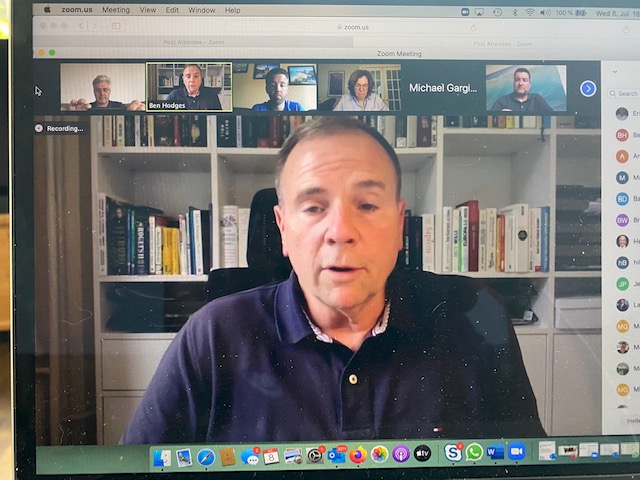 General Ben Hodges talked about the state of German-American relations in the wake of the U.S. decision to take about 9,500 of the 34,000 U.S. soldiers stationed in Germany out of the country. Hodges now works as an analyst in Frankfurt for the Center for European Policy Analysis (CEPA).
General Ben Hodges talked about the state of German-American relations in the wake of the U.S. decision to take about 9,500 of the 34,000 U.S. soldiers stationed in Germany out of the country. Hodges now works as an analyst in Frankfurt for the Center for European Policy Analysis (CEPA).
“I think it’s a colossal mistake,” Hodges said of the withdrawal plans. “Absolutely a gift to the Kremlin. They did nothing and yet they get a one-third reduction in U.S. capability in Germany, which is essential for rapid reinforcement and is important for deterrence.” He added that he believes the relationship between the United States and Germany is the most important the United States has.
“Germany is the one country that can probably influence Kremlin behavior and influence behavior of the Chinese Communist Party because of its economic power and it can bring along the EU. And also Germany has earned a sort of moral authority over the last seven decades that if it learns how to use this power, if you will, it doesn’t have to mean military, that’s why the United States should be pursuing Germany as our most important ally and be a lot smarter instead of honestly kicking them all the time in the public.” He added that there seems to be more criticism of Germany from the United States at the moment than of North Korea or Russia.
Hodges added, however, that Germany should do more to bolster its own defense, which has been a point of contention between the United States and Germany for decades. “There’s no excuse for Germany not doing more,” he said. “I’m not ever going to defend them for doing so poorly in terms of the level of readiness of the Bundeswehr, their willingness to spend more.” He said that because Germany has coalition governments it was unlikely that Germany would substantially increase its defense spending towards the 2 percent target in the future.
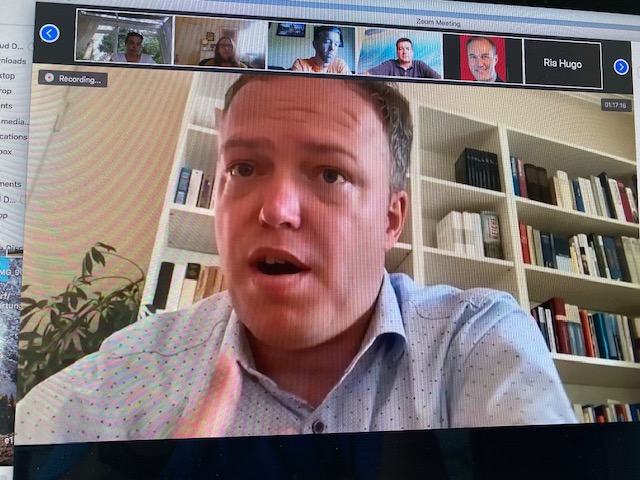 In an earlier Zoom talk on June 25, Mario Voigt, the parliamentary floor leader of the conservative Christian Democrats (CDU) in Thuringia, talked about his state’s astonishing success in combating the coronavirus crisis as well as its recent reopening. He also talked about the political upheaval in his state earlier this year when the CDU in Thuringia become embroiled in a political scandal by supporting a candidate for governor from the Free Democrats Party (FDP) who also was supported by the far-right AfD party. The FDP candidate resigned and the left party governor Bodo Ramelow was later re-elected for a second term, but the CDU suffered during the scandal and Voigt was promoted to parliamentary floor leader.
In an earlier Zoom talk on June 25, Mario Voigt, the parliamentary floor leader of the conservative Christian Democrats (CDU) in Thuringia, talked about his state’s astonishing success in combating the coronavirus crisis as well as its recent reopening. He also talked about the political upheaval in his state earlier this year when the CDU in Thuringia become embroiled in a political scandal by supporting a candidate for governor from the Free Democrats Party (FDP) who also was supported by the far-right AfD party. The FDP candidate resigned and the left party governor Bodo Ramelow was later re-elected for a second term, but the CDU suffered during the scandal and Voigt was promoted to parliamentary floor leader.
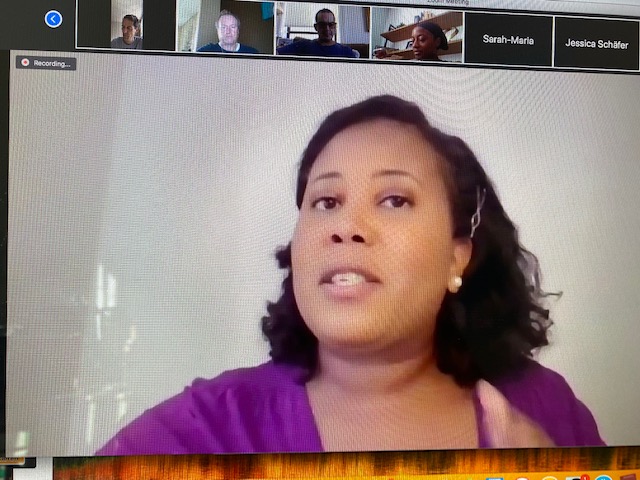 And in a Zoom talk on July 2, three RIAS alumni from Florida, Texas and Arizona talked about the sudden rise in Covid-19 infections in their states and shed light on what had gone wrong in recent weeks. Kenya Woodard from Tampa in Florida, David Wagner from San Angelo, Texas and Buzz Conover in Arizona talked about some of the bleak moments in their states and an ominous death of public confidence in many of the elected leaders in their respective states. They were asked by a RIAS alumni on the Zoom talk from Cologne if there was any leader in their states or in the United States whom the public was trusting and their surprising answer was: nobody. There was not even widespread public faith in the advice from Dr. Anthony Fauci, the director of the National Institute of Allergy and Infectious Diseases, they said.
And in a Zoom talk on July 2, three RIAS alumni from Florida, Texas and Arizona talked about the sudden rise in Covid-19 infections in their states and shed light on what had gone wrong in recent weeks. Kenya Woodard from Tampa in Florida, David Wagner from San Angelo, Texas and Buzz Conover in Arizona talked about some of the bleak moments in their states and an ominous death of public confidence in many of the elected leaders in their respective states. They were asked by a RIAS alumni on the Zoom talk from Cologne if there was any leader in their states or in the United States whom the public was trusting and their surprising answer was: nobody. There was not even widespread public faith in the advice from Dr. Anthony Fauci, the director of the National Institute of Allergy and Infectious Diseases, they said.
July 2, 2020
RIAS Berlin Alumni Chapter meets after long coronavirus hiberation
About nine members of the #RIASBerlin alumni chapter in Berlin met — cautiously and with appropriate social distancing — for the first time in many months on Wednesday, July 1 at a restaurant in the center of Berlin. With the Covid-19 lockdown measures from mid-March having been relaxed in recent weeks, the Berlin alumni chapter decided to try to meet again in person after months of taking part in virtual meetings from their homes and offices.
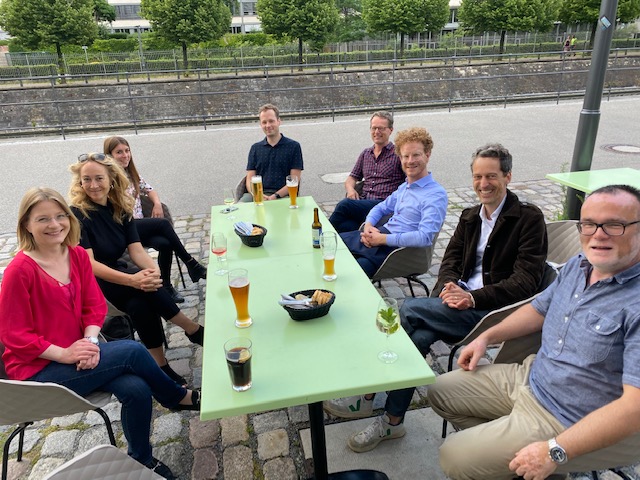
It was generally agreed that it was really great to see colleagues in the RIAS community in person again after so many months in isolation. Trying to work and juggle home responsibilities during the coronavirus, coping with rabid skeptics of journalism, the future of the RIAS program in 2021, the US elections in November, the situation in Hong Kong, rising rent prices in Berlin and the RIAS Zoom talks were among the topics discussed.
The Berlin alumni chapter members said they hoped to turn the meeting into a monthly Stammtisch gathering in Berlin. Other alumni chapters in Cologne and Berlin are hoping to hold in-person meetings again soon.
June 22, 2020
RIAS Zoom Talks ahead
There will be three more RIAS Zoom talks over the next three weeks. We hope you can take part in these. Please contact info@riasberlin.org for details to these calls on June 25, July 2 and July 8.
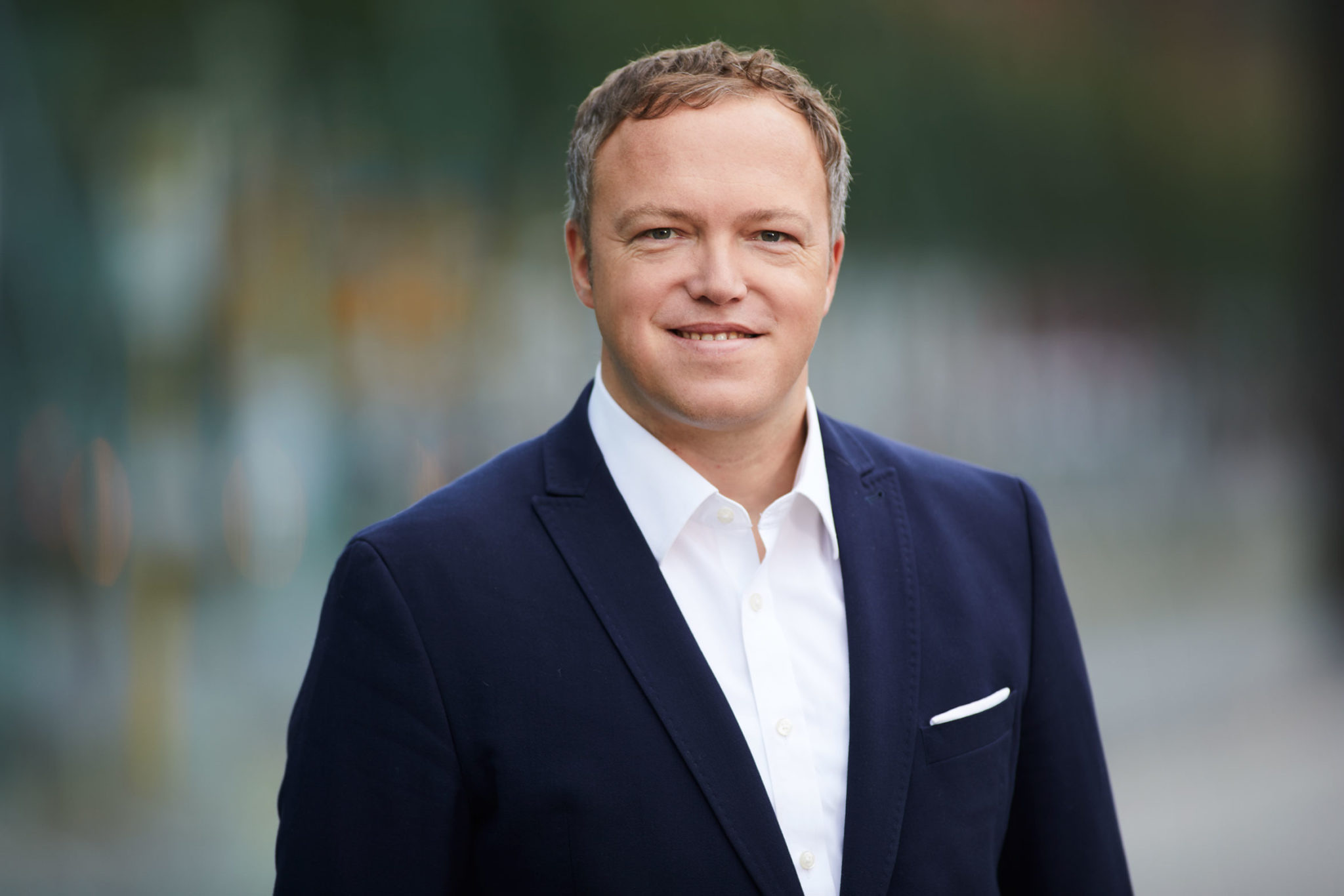
1 – Why is the eastern state of Thuringia in the news about extremely low Covid-19 numbers and reopening the state? And why have the far-right AfD upset German politics this year with an election trick?
Thursday, June 25 – Mario Voigt, the leader of the conservative Christian Democratic opposition in the state parliament in Thurginia, will try to answer those questions at a RIAS zoom Talk. Voigt is a regular guest speaker for RIAS groups to Germany and knows the US election system well after studying at the University of Virginia – Charlottesville. He has a doctorate in American election campaigning. Time: Jun 25, 2020 05:30 PM Berlin 11:30 am EST
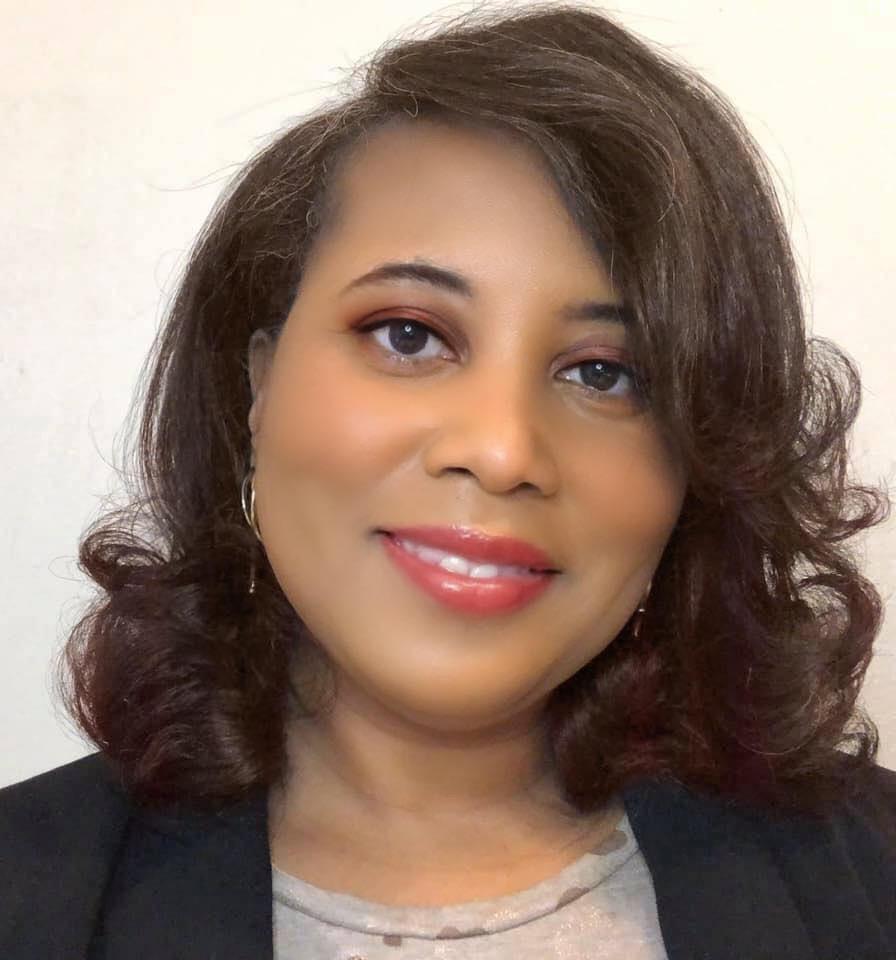
1 – Why are the numbers of people infected with Covid-19 rising so rapidly in states such as Florida, Texas and Arizona? Three RIAS alumni who work as journalists in those three states will explain why the numbers are rising, what the state leaders are doing about that and how the public is reacting.
Thursday, July 2 – David Wagner (News Director at KLST TV San Angelo, Texas), Buzz Conover (Reporter Public Radio in Tucson, Arizona) and Kenya Woodard (freelance jouralist in Tampa Bay, Florida) will try to answer those and other questions at a RIAS zoom talk on July 2. Time: Jul 2, 2020 05:00 PM Berlin, 11 a.m. EST
3 – Where are German-US relations and NATO headed?
Wednesday, July 8 – Lieutenant General (Retired) Ben Hodges will be talking about U.S.-German relations, NATO and offering insights and backgrounds on the Trump Administration’s proposals to move more than one-quarter of the 34,500 U.S. forces stationed in Germany. Hodges, who is a regular guest in the German media and has talked to RIAS groups in Germany before, holds the Pershing Chair in Strategic Studies at the Center for European Policy Analysis. He joined CEPA in February 2018. A native of Quincy, Florida, General Hodges graduated from the United States Military Academy in May 1980 and was commissioned in the Infantry. His last military assignment was as Commanding General, United States Army Europe (Wiesbaden, Germany) from 2014 to 2017. He retired from the U.S. Army in January 2018. The talk will be on July 8th, 2020 06:00 PM Berlin, 12 noon EST.
June 18, 2020
Legendary RIAS DJ ‘Lord Knud’ dies at 76
Lord Knud, who was one of the best-known DJs at RIAS in both West Berlin and Communist East Germany during the 1970s and 1980s, died recently at his house in Berlin at the age of 76, according to reports on RBB television’s website and Berlin newspapers.
The host of such popular RIAS music programs such as “Schlager der Woche” (Hits of the Week) and “Evergreens a go-go”, Lord Knud was a former rock musician in Berlin before becoming a DJ and gaining fame on both sides of the Iron Curtain for pushing the boundaries with off-color on-air commentaries.
“Lord Knud was a radio star,” wrote RBB Berlin journalist Ulli Zelle in a tribute to the man born Knud Friedrich Martin Kuntze in 1944 that appeared in Der Tagesspiegel newspaper. “He worked as a DJ with his biting Berlin attitude, his rough jokes and acidic jabs against those in power ‘over there’ in the Communist SED party ruling.”
Lord Knud was a bass player in the Berlin band The Lords in the mid-1960s that was often called Germany’s answer to the Beatles. After losing his right leg in a bus accident during a tour, he started a new career as a DJ for RIAS in 1968 and became a popular fixture at the station until 1986.
June 16, 2020
Racism in USA and Germany focus of recent RIAS zoom talks

RIAS alumni Yami Virgin from San Antonio, Texas and Peter Mücke from ARD radio in New York talked about life in the United States during the Covid-19 crisis in two separate RIAS zoom talks, the protests sweeping the United States and the 2020 election season.
In addition, Greens politician Özcan Mutlu from the central Berlin district of Mitte-Kreuzberg talked to a further RIAS zoom talk group about racism and the political landscape in Germany.
In another RIAS zoom talk, New York Times video journalist Ainara Tiefenthäler talked about the detailed examination that she and a team of reporters worked on of the moments leading up to the death of George Floyd in Minneapolis that triggered nationwide protests. Here is a link to the video from Tiefenthäler, who won a RIAS media prize in 2019.
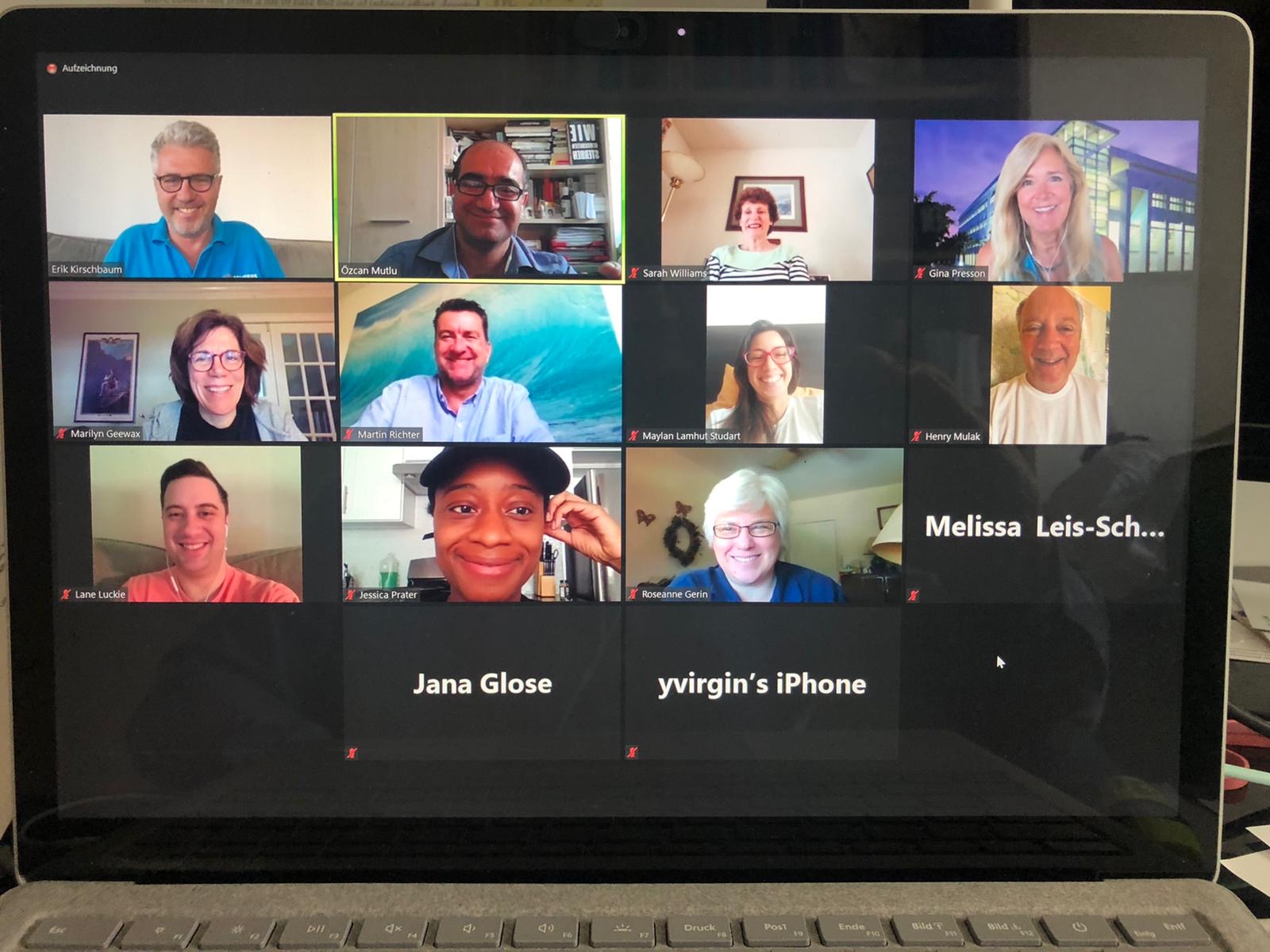 Yami Virgin, an anchor/reporter at Fox San Antonio in Texas, talked about the impact that Covid-19 is having on San Antonio, the recent wave of protests and the 2020 election in Texas. She said that work has been a challenge for the last three months as she and most of her colleagues have been working from home. An enthusiastic station week host for more than a dozen German journalists on RIAS programs over the years, Virgin also spoke about the protests and looting that have taken place in San Antonio.
Yami Virgin, an anchor/reporter at Fox San Antonio in Texas, talked about the impact that Covid-19 is having on San Antonio, the recent wave of protests and the 2020 election in Texas. She said that work has been a challenge for the last three months as she and most of her colleagues have been working from home. An enthusiastic station week host for more than a dozen German journalists on RIAS programs over the years, Virgin also spoke about the protests and looting that have taken place in San Antonio.
Peter Mücke, who took part in a RIAS program to the United States in 2001, is one of two ARD radio correspondents based in New York. He has also worked for ARD from Berlin, New Delhi and Tokyo. He spoke about the popularity of New York Governor Andrew Cuomo and contrasted that with some of his earlier comments downplaying Covid-19.

Özcan Mutlu, a regular guest speaker for groups of American RIAS fellows visiting Germany, talked about racism in Germany and some of his own personal experiences being interrogated by police even after another motorist crashed into his car from behind. A member of parliament until 2017, Mutlu talked about anti-police brutality demonstrations spreading across Germany in solidarity with the protests taking place throughout the United States. Mutlu also spoke about the 2021 election in Germany.
June 4, 2020
RIAS zoom talks with alumni focus on tensions in USA, Germany’s Covid-19 response
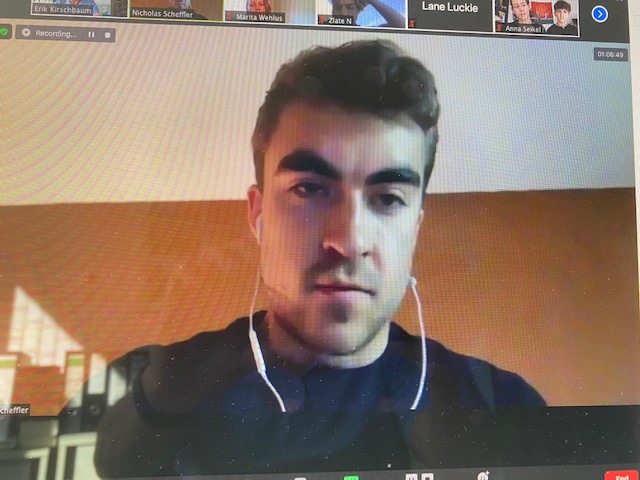
More than 60 RIAS Berlin Commission alumni members and candidates for future programs took part in three RIAS Zoom Talk sessions this week with distinguished alumni and leading journalists in Germany and the United States.
University of Minnesota journalism student Nicholas Scheffler (pictured left) talked on June 2 about his experiences in Minneapolis and some of the background about racial tensions in the city that has seen an eruption of violence in the last week after a black man was killed while in police custody on Memorial Day.
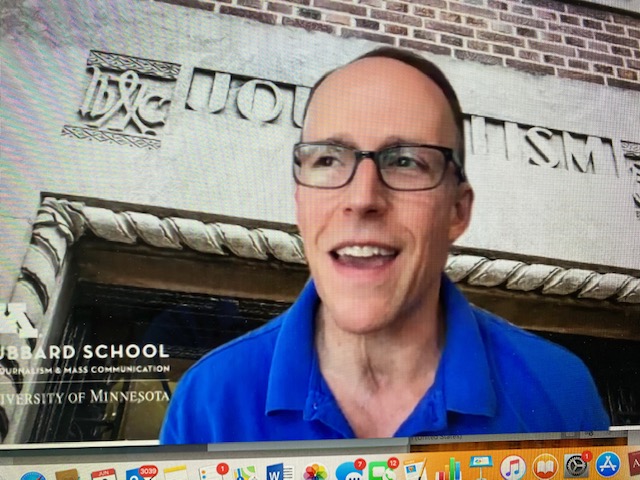
He talked about how there were large demonstrations that began peacefully but later turned violent. Scheffler, who was a RIAS fellow from the 2019 student program to Germany, said there was a lot of anger on his campus and in the city about the sense of injustice. “It’s anger but it’s coupled with deep sadness,” he said. “It’s very humbling. You can feel the community’s pain everywhere.”
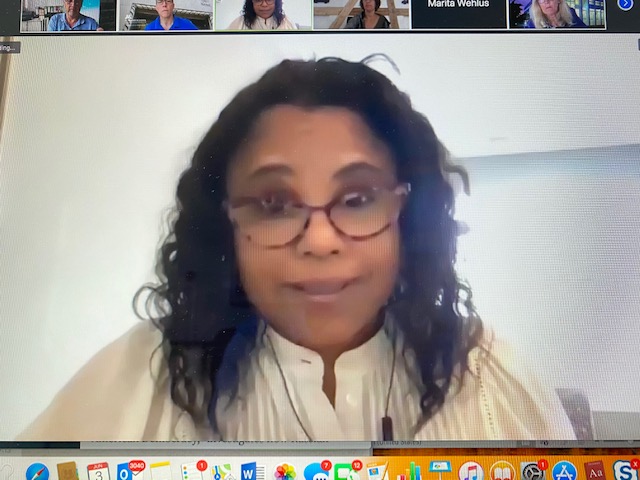
Scott Libin, a University of Minnesota journalism professor and past chairman of the RTDNA (pictured above), joined fellow alumni Stacey Samuel, an executive producer at Al Jazeera in Washington DC who previously worked for NPR and CNN, to talk to another RIAS zoom group on June 3 about some of the deeper issues behind the protests as well as take a look at the media coverage across the country and around the world about the turmoil that began in Minneapolis, Minnesota on May 25.
Matt Karnitschnig, POLITICO’s Chief European Correspondent, talked to another group on June 3 about how Germany has managed to come through the Covid-19 pandemic less scathed than many other countries. He said it was a combination of dumb luck of getting an early warning after the virus erupted in Italy along with a strong medical care system that was prepared for the pandemic.
Karnitschnig, who is also a member of the RIAS Berlin Commission board, also talked about the 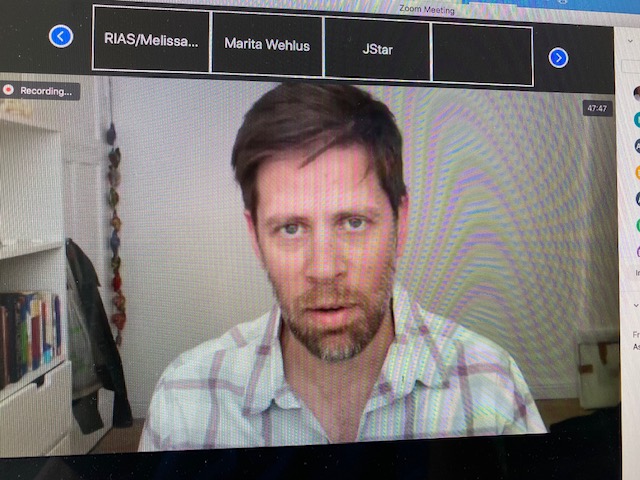 political landscape in Germany and how Chancellor Angela Merkel’s Conservative party has risen strongly in opinion polls in recent months as voters give her and her party credit for their leadership during the crisis. The next Germany federal election is due in the fall of 2021. Merkel is not standing for re-election. The RIAS Berlin Commission is planning to hold another one-week RIAS alumni program in Berlin during the week of the election — likely in late September 2021.
political landscape in Germany and how Chancellor Angela Merkel’s Conservative party has risen strongly in opinion polls in recent months as voters give her and her party credit for their leadership during the crisis. The next Germany federal election is due in the fall of 2021. Merkel is not standing for re-election. The RIAS Berlin Commission is planning to hold another one-week RIAS alumni program in Berlin during the week of the election — likely in late September 2021.
The RIAS zoom talks will continue this weekend on Saturday at 4 p.m. Berlin time (10 a.m. New York time) with a talk with New York Times video producer Ainara Tiefenthäler, who worked on this chilling video story about the death of George Floyd while in police custody. Tiefenthäler won the RIAS Media Prize in 2018 for another story on problems that asylum seekers were having in parts of Germany. “Land of Good – Seeking Asylum in Germany, and Finding Hatred”. Here is a link to the prize-winning video.
Please write to info@riasberlin.org for more details about Saturday’s zoom talk.
June 2, 2020
RIAS alumni from Minneapolis, POLITICO’s Karnitschnig at this week’s RIAS Zoom Talks
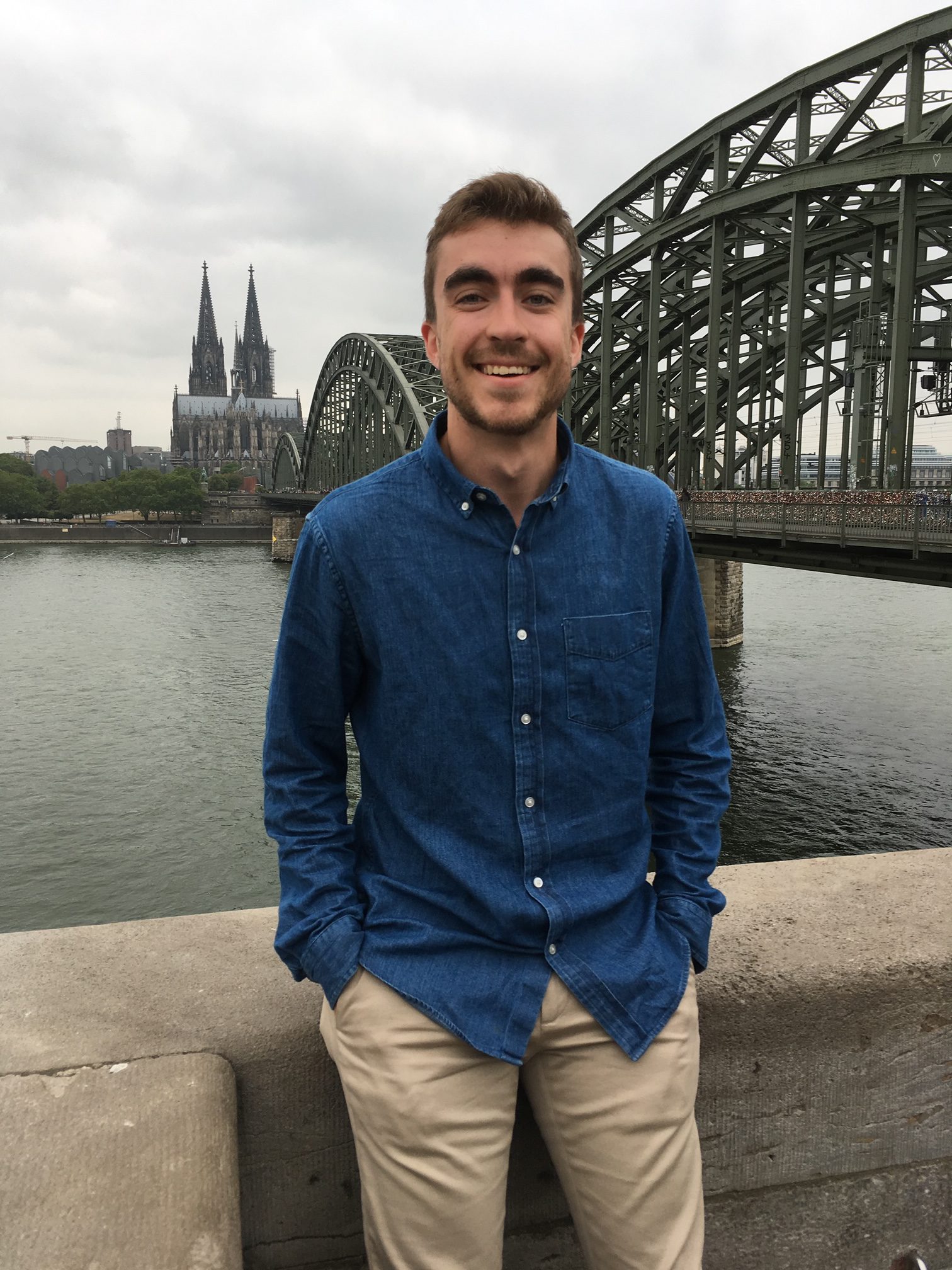 Two RIAS Berlin Commission alumni from Minnesota will take part in RIAS special zoom talks added to this week’s schedule to talk about the violent protests that have erupted in Minneapolis in the last week and answer questions from other RIAS alumni, candidates and board members.
Two RIAS Berlin Commission alumni from Minnesota will take part in RIAS special zoom talks added to this week’s schedule to talk about the violent protests that have erupted in Minneapolis in the last week and answer questions from other RIAS alumni, candidates and board members.
These talks will include ample opportunities for Q&A. The conversations held on Zoom are generally on-the-record unless otherwise stated. The hope is that these sessions might help inspire ideas for stories, for thinking differently about some issues, for learning more about German and American issues, and above all connect you more closely to the RIAS network.
Please write to info@riasberlin.org for log-on details for the Zoom meetings. Here is more information about the three guest speakers for the three meetings this week on Tuesday and Wednesday:
Nicholas Scheffler, a University of Minnesota student studying journalism and German (pictured above left), will take part in the first RIAS zoom talk at 1700 CET (11 am. EST) on Tuesday, June 2.
Scott Libin, a senior fellow at Hubbard School of Journalism at the University of Minnesota (pictured below), will lead a Zoom talk on Wednesday, June 3 at 1800 CET (12 noon EST).
Libin was a RIAS fellow in June of 2018 in Germany, Prague and Brussels and has also served as chairman of the RTDNA while Scheffler, who graduates in 2020, was a RIAS fellow on the summer exchange program for students in 2019 and visited Berlin, Hamburg, Leipzig and Cologne. 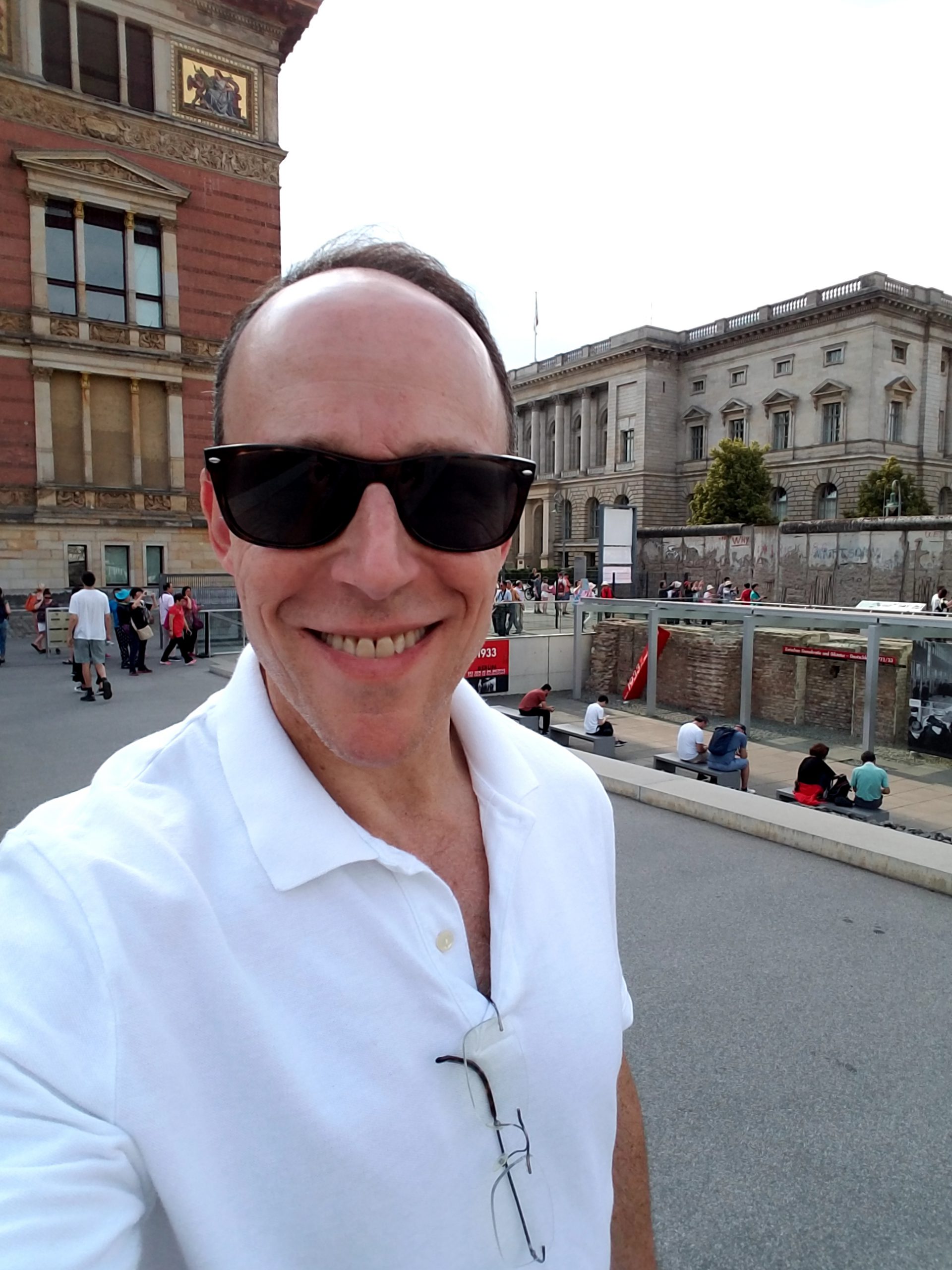 Scheffler wrote a column about the police tension in Minneapolis for the University of Minnesota student newspaper, the Minnesota Daily.
Scheffler wrote a column about the police tension in Minneapolis for the University of Minnesota student newspaper, the Minnesota Daily.
As previously announced, POLITICO’s Chief European Correspondent Matthew Karnitschnig will speak on a RIAS Zoom talk on Wednesday at 1700 CET (11 a.m. EST). Karnitschnig, who is from New Mexico with Austrian roots and has lived in Germany for many years, is a member of the RIAS Berlin Commission Board. He has written a number of insightful stories on Germany’s response to Covid-19, including this story that attributed the country’s success in coming through the crisis relatively unscathed in part to “dumb luck”.
May 27, 2020
WUSA9 anchor Larry Miller talks about changes in USA with Covid-19
Larry Miller, an anchor at WUSA9 TV in Washington DC and a RIAS alumni, said 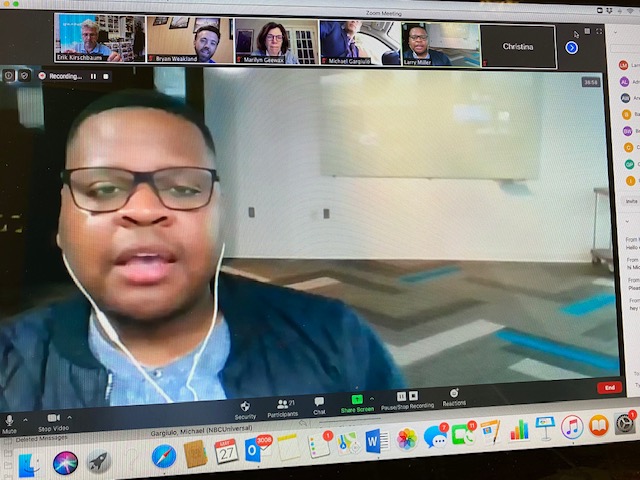 that the coronavirus pandemic has created a lot of new challenges in his job and that there has been a lot of stress involved in covering the news. But he said it has also been an extremely interesting time in his career, which began in Oregon and included a stop in Alabama before he ended up in Washington DC six years ago.
that the coronavirus pandemic has created a lot of new challenges in his job and that there has been a lot of stress involved in covering the news. But he said it has also been an extremely interesting time in his career, which began in Oregon and included a stop in Alabama before he ended up in Washington DC six years ago.
“All interviews have to be done by zoom and Skype and FaceTime or telephone,” Miller told a group of 21 RIAS alumni and candidates in a videoconference. “Our job is about interviewing people. Zoom and Skype have made it convenient and have allowed us to maintain safety. But you certainly lose that human connection that makes storytelling so great. Not being able to talk to people face to face — often there’s texture and color in an interview that’s lost when you don’t get to have that human connection because you may not always understand through body language what the follow up question or comment on those things is that make people visibly uncomfortable and to then go back to that and ask ‘Why do you feel uncomfortable when I ask you that?’. You can’t comment on those things that might make people uncomfortable. I can’t ask those things because I can only see their neck and face. Those things have made it challenging in some respect, but I think we’re doing the best we can navigating that.”
Miller, who made an interesting video for future RIAS participants after his fellowship in 2019, said that viewers seem to be hungry for non-Covid-19 news at times and pointed out that ratings at his station have risen by 250%. “Ratings are through the roof. We’re seeing a substantial increase in viewership. That’s great for job security,” he said. “People want context.”
Miller, who was nominated for an Emmy award this year, said he thinks the media have been slow off the mark to report on the impact on small business from the coronavirus crisis that has sent the unemployment rate soaring and put strains on many companies, large and small. “I think the story that a lot of people are missing now centers on the business fallout that we’ve had from this. We’re starting to see a lot of businesses, especially minority-owned businesses, not getting access to loans. One study put it that close to 95% of minority-owned businesses applying for these loans are not getting them. There is this economic small business story that we’re not paying attention to.”
Miller said it has been an extraordinary period for journalism. The political divisions in the United States have started to have an impact on the coronavirus discussions, he said.
“It’s been stressful but it’s also been interesting,” he said. “And I think we are just trying to be responsive to the viewers in the best way we possibly can and we’re trying to be respectful as well.”
May 26, 2020
German TV medical correspondent sheds light on country’s Covid-19 track record
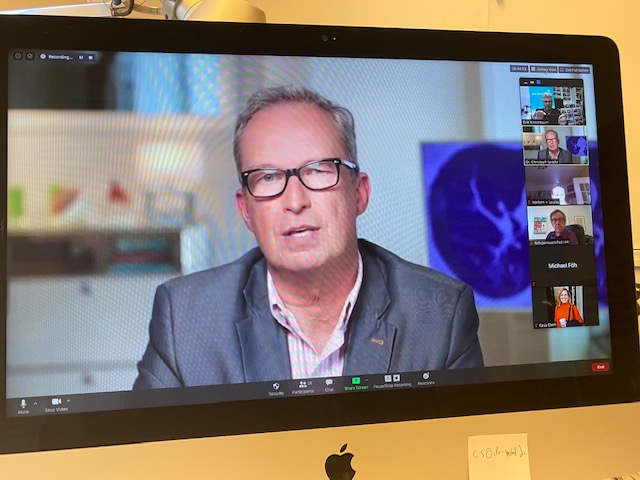
Germany managed to come through the first phase of the coronavirus crisis in relatively good shape thanks to a combination of good luck and good preparation, German TV medical correspondent Dr. Christoph Specht said in a RIAS Zoom Talk meeting on Tuesday. A regular commentator on medical news for German networks such as NTV, RTL and ZDF, Specht explained to a group of about 30 RIAS fellows, alumni and candidates from the United States and Germany that a lot of testing and a high number of intensive care beds in Germany also played an important role.
“First of all let me say we’re just in the beginning of the pandemic, we’re not through yet,” Specht said. “If things went well up until now, it’s just the situation now and not the end. There was luck too for Germany, just pure luck. Italy was hit first in Europe so we had an advance warning of two to four weeks before it came to Germany so we saw what could happen. If Germany had been the first country hit in Europe, the situation might have been different.”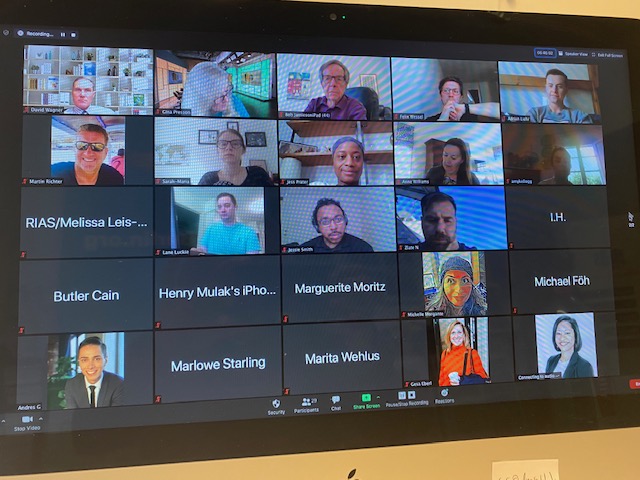
Specht added that Germany was also lucky that many of those first infected by Covid-19 were relatively young and healthy who contracted the virus while on skiing vacations in Italy and Austria. He noted that senior citizens are more vulnerable to the virus. That is why the case fatality rate in Germany was under 1.0 in the early weeks and has risen to just 4.6 now compared to levels above 12 in Italy, Spain, the United Kingdom and the United States. Germany’s Health Minister Jens Spahn also credited testing and intensive care beds for the relatively low numbers in Germany.
Specht, who is based in Düsseldorf, said that another contributing factor helping Germany was that there is universal health care in Germany available to everyone. He said Germany also started with far more intensive care beds per 100,000 inhabitants (35) than other countries in the United States and even raised the number to 39 beds per 100,000 — many of which were not needed. He also said that Germans proved to be dutiful in following the guidelines from the governments and health authorities.
 “I think that played a role too,” he said. “It might be a piece of the German DNA. But in the beginning people were really frightened by the scenes on the evening news from Italy and Spain, and they wanted to do everything they could to avoid the pandemic. In the beginning people really did everything they could to reduce their risks. That helped a lot.”
“I think that played a role too,” he said. “It might be a piece of the German DNA. But in the beginning people were really frightened by the scenes on the evening news from Italy and Spain, and they wanted to do everything they could to avoid the pandemic. In the beginning people really did everything they could to reduce their risks. That helped a lot.”
Asked about criticism from Italy that Germany and the rest of the European Union should have done more to help Italy, he agreed. “We could have done more,” he said.
Specht said that even though the numbers of infected and reproduction rates in Germany are low and under control in most of the country, there was an understandable fear of a second wave. “We don’t know if there will be a second wave. We don’t know if it will strike in a couple of weeks or a couple of months or in the autumn or winter. I believe it will hit us in the winter.”
Germany will likely be a case study in the future for what might work and not work in a pandemic, Specht said. He added that no one knows for sure if the extensive lockdown measures the government implemented on March 22 worked or not. “We don’t know what measures did what, what effect they had. We don’t know if the lockdown helped. I personally believe the lockdown, especially at the beginning, was the right measure to take. And it’s a good idea now to loosen the lockdown as we are in Germany.”
May 25, 2020
RIAS Zoom Talks lined-up for this and next week
RIAS Zoom Talks will resume on May 26th with a focus on how Germany has handled the coronavirus crisis compared to other countries hit harder.
German medical correspondent Christoph Specht from Cologne will be talking about Germany’s response to the coronavirus on Tuesday May 26th, and WUSA TV anchor Larry Miller will join us from Washington DC on Wednesday May 27th to discuss how the pandemic has changed his world. On Wednesday June 3rd, we will welcome Politico’s Chief European Correspondent Matthew Karnitschnig.
Christoph Specht is one of Germany’s leading medical experts on television and can be seen regularly on NTV, RTL and ZDF explaining, among other things, how the country is getting through the coronavirus crisis.
Larry Miller is a RIAS alumni and a midday anchor on WUSA9. Inspired by his RIAS Berlin Commission fellowship in 2019, he made this video to help future RIAS participants prepare for their RIAS experience.
Matthew Karnitschnig is a member of the RIAS Berlin Commission Board and has written a number of insightful stories on Germany’s response to Covid-19.
These talks will include ample opportunities for Q&A. The conversations will be held on the Zoom platform and will be on-the-record unless otherwise stated beforehand. We hope these sessions insprire reflection and possibly ideas for stories as well as offer everyone an opportunity to think differently about some issues. These are aimed at allowing participants to learn more about German and American issues and, above all, to connect you more closely to the RIAS Network.
Please contact info@riasberlin.org for log in details.
May 20, 2020
Gargiulo says New York TV viewers growing weary of gloomy news
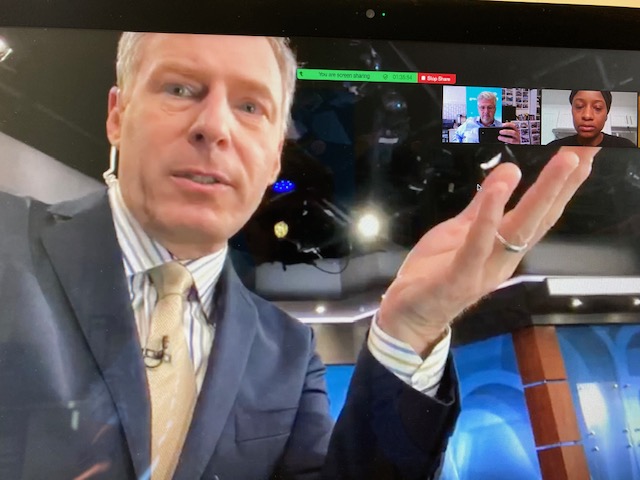
WNBC co-anchor Michael Gargiulo said in a “RIAS Zoom Talk” on Wednesday that he sensed TV viewers in New York were growing weary of a steady drumbeat of depressing half-hour news bulletins on the latest numbers of Covid-19 fatalities and were yearning for some uplifting news or angles on the story different from those that have dominated the media for months. So Gargiulo, a RIAS alumni and co-leader of the New York alumni chapter, urged his station to try to find other ways to report the story without always emphasizing the latest death figures at the top of the news bulletins.
“I asked our producers a couple of weeks ago, I said ‘Let’s not do that every half hour. We need to give out the numbers of people dying from Covid, but let’s put them in the context of a story’. I just don’t think people want to hear every half hour how many are dead. I don’t think that tells the whole story of what we’re doing. We also started a franchise, a set of stories called ‘Grateful 4 You’ because we’re Channel 4. And we run stories every day on things like the chef who is out of work who makes lunch for first responders or the college graduates who are buying food for people who can’t get out. These are remarkable stories of people who are doing remarkable things.”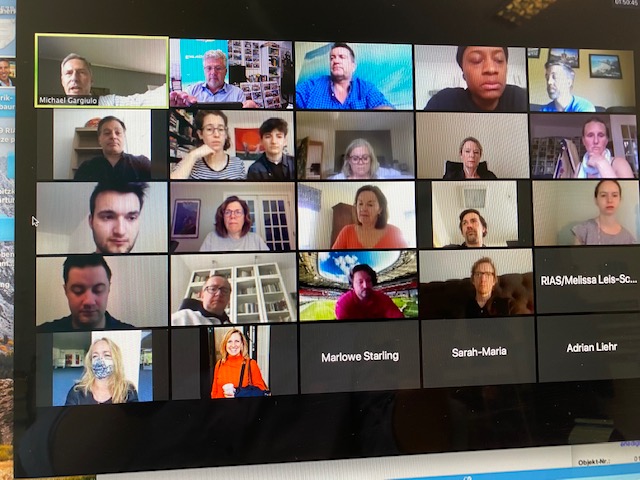
Gargiulo, who also made a short video on his early morning routine to and at work, talked candidly about that and other issues such as changes at work and at home since the outbreak of the pandemic. He said more people than ever are watching the TV news these days, but the problem for networks like WNBC is that they have lost a lot of advertisers — “and that’s going to cause a lot of economic pain.”
In a wide-ranging talk to about 30 RIAS alumni and candidates for future RIAS programs, Gargiulo also spoke about the changes he and his fellow New Yorkers are facing and will be facing for a long time to come. “Everything we love about cities has changed,” Gargiulo said. “All cities are facing these changes. Cities thrived because people loved that lifestyle. Now we’re trying to figure out what’s next.”
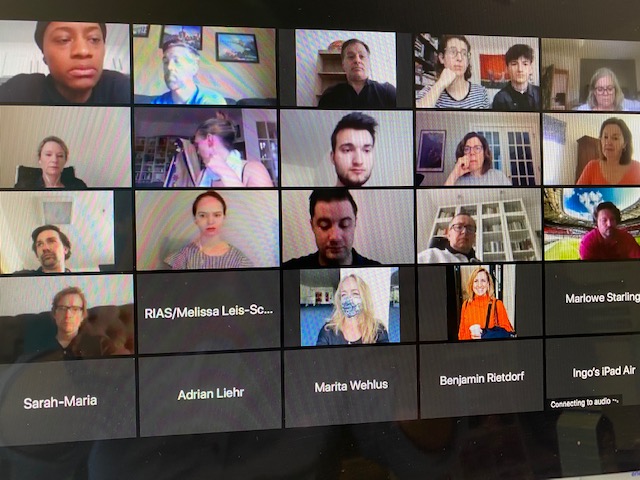 Gargiulo also noted that the coronavirus crisis had worsened some of the political and regional divisions inside the United States. He said that New Yorkers are not always welcome in other states because of the high numbers of infected New Yorkers. He told stories of some New Yorkers who had difficulties driving in Florida with their New York license plates and others who went out of their way to get rental cars with non-New York license plates.
Gargiulo also noted that the coronavirus crisis had worsened some of the political and regional divisions inside the United States. He said that New Yorkers are not always welcome in other states because of the high numbers of infected New Yorkers. He told stories of some New Yorkers who had difficulties driving in Florida with their New York license plates and others who went out of their way to get rental cars with non-New York license plates.
He also talked about the pitfalls of being a public figure in the New York area.
“Yesterday I went for a run with my wife and realized shortly after starting that I forgot my mask. My wife said don’t worry about it. But I thought ‘oh no, I got to go home and get it’,” he said, concerned that his violation of the rule could cause a stir. “I’m very careful when I’m out. We’re always liable to be captured on video doing something. So I always have to obey all the rules all the time.”
There will be two more “RIAS Zoom Talks” next week – on Tuesday May 26 with Germany’s best-known TV doctor Christoph Specht (N-TV) at 1700 Berlin time (1100 EST) and on Wednesday May 27 for a talk with WUSA9 anchor Larry Miller at 1600 Berlin time (1000 EST). Write to info@riasberlin.org for log-in details.
May 19, 2020
Beyer says more connecting Germany and US than dividing it, in RIAS Zoom Talk
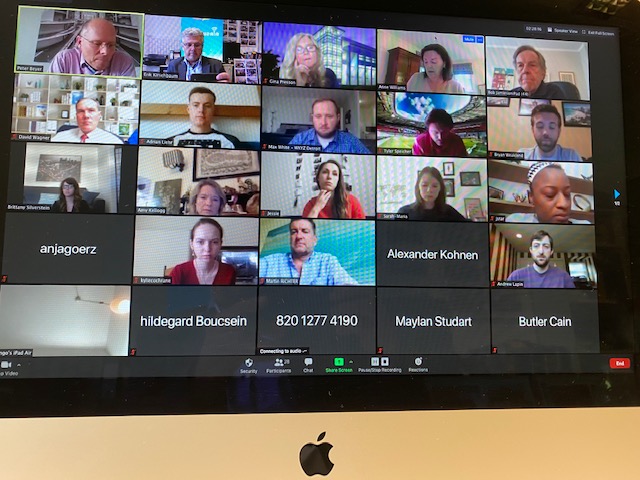
The German government’s transatlantic coordinator, Peter Beyer, said in a meeting with German and US journalists that there is far more that connects the two countries than divides them, and expressed his hope that there could one day be a comprehensive free trade agreement between the United States and the European Union. Beyer, who is also a RIAS Berlin Commission board member and travels to the United States on average once per month, said he was disheartened by recent opinion polls showing that German views of China are improving while opinions on the United States are declining.
“My transatlantic heart is bleeding,” Beyer said of those surveys in a virtual Zoom talk with about 32 RIAS Berlin Commission alumni and candidates for future programs. “There is more that unites us than divides us. We have to see how we can overcome some of the problems.”
Beyer, an enthusiastic supporter of German-US relations, has had to put all that travel to the
United States on hold since March. He said he is not sure whether conditions will allow him to travel to the United States again this year. He said he hoped talks for a free trade agreement could start as soon as possible.
Beyer is a member of the German parliament in Chancellor Angela Merkel’s Conservative party and also answered questions from the RIAS alumni about how Germany has managed to get through the coronavirus crisis so far. He said there was likely a combination of factors that helped the country, including Merkel’s leadership.
“Angela Merkel was a good crisis manager before and proved to be the case this time as well,” he said, referring to how Merkel led Germany through the 2008 financial crisis and the euro-zone currency crisis that followed in the ensuing years. “The biggest reason is that the Germans, by the vast majority, were living by the rules. They realised it was a big emergency and played by the rules for a long time. That’s probably the most important contribution.”
Beyer added: “There is no easy answer for that. We’re far from being out of it. We had a lot of intensive care units, more than we needed it turns out. We were well-equipped. We were not well- equipped with masks. We found a good proportionate way of restricting freedom rights and with lockdown restrictions. I think it was a very good format. The federal government and the 16 regional governments coordinated their moves. It was very calmly managed. The lockdown restrictions were not as harsh as in other parts of the world. We’re having modest lifting of the restrictions now. It was time we started lifting the restrictions.”
Beyer said he was unsure how the coronavirus crisis would change the transatlantic relationship, but reckoned it would have an impact: “I can’t say right now how much the pandemic is changing the transatlantic relations. It seems to me the situation will leave footprints and make changes that will be there in the transatlantic relations for some time.”
Beyer also noted the US election campaign this year is a lot different than in the past years due to the pandemic. He said that in normal times, the high unemployment level and difficult economic situation in the United States would be a problem for the incumbent. But he said that this year, with the pandemic looming, the situation is far from clear. He said it was important for Germans to keep in mind the November election would also be for Congress and not just a presidential race.
“We have a strong interest in multi-lateralism. We sometimes criticise the U.S. administration. We love the United States. I think everyone in parliament and the federal government knows how important the American friends are for our future, for our sheer existence and for our prosperity. But sometimes these days our American friends give us a headache when we oftentimes seem to be aligned and with similar interests, such as in Iran, but we totally seem to disagree on the way to reach these aims. We have similar interests with China. We sometimes take different approaches.” 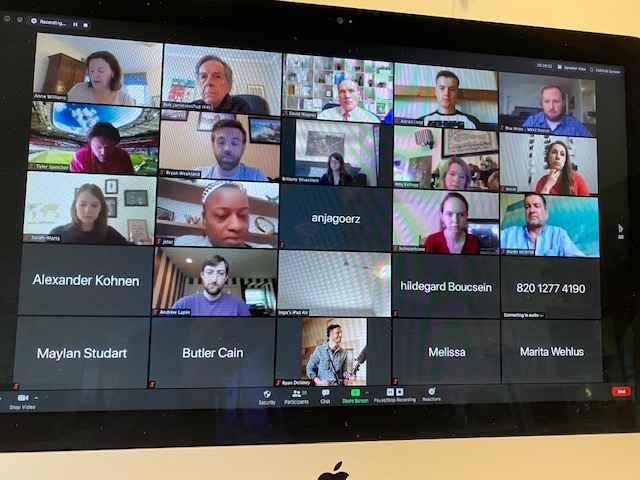
The next RIAS Zoom talk will take place on Wednesday, May 20 at 1600 Berlin time with WNBC anchor Michael Gargiulo, who will talk about how the pandemic has changed both his life and news network in New York. German medical doctor Christoph Specht of NTV and RTL networks will speak on Tuesday May 26 about Germany’s handling of the pandemic and RIAS alumni, Larry Miller, will talk about his work during the coronavirus crisis as an anchor at WUSA9 in Washington DC.
May 18, 2020
PLEASE TAKE NOTE: The RIAS Zoom Meeting with WNBC New York Today Show co-anchor Michael Gargiulo has been moved from Thursday to Wednesday May 20 at 1600 Berlin time (1000 EST).
May 15, 2020
RIAS Zoom Talks kick off with meetings with Peter Beyer, WNBC’s Michael Gargiulo
The RIAS Berlin Commission will be starting a series of RIAS Zoom Talks on May 19 and is inviting alumni, candidates and anyone interested to join us for these regular virtual meetings with newsmakers in both Germany and the United States as well as journalists from the RIAS alumni network. These talks will include ample opportunities for Q&A. The conversations will be held on Zoom and generally on-the-record unless otherwise stated. The hope is that these sessions might help inspire ideas for stories, for thinking differently about some issues, for learning more about German and American issues, and above all connect you more closely to the RIAS network.
Please write to info@riasberlin.org for log-on details for the Zoom meetings. Here are the guest speakers for the first two meetings next week:
May 19, 4 p.m.-5.15 p.m. Berlin time (10 a.m.-11.15a.m. EST)
Peter Beyer, a senior member of the German parliament, will talk about German-American
relations, the coronavirus crisis in Germany and his thoughts on the U.S. election. Peter is one of the most committed advocates of strong transatlantic relations with the United States in the Reichstag. He is also the German government’s Coordinator of Transatlantic Cooperation. He studied law in the United States at the University of Virginia School of Law. He is also a board member of the RIAS Berlin Commission. May 19, 4 p.m.-5.15 p.m. Berlin time (10 a.m.-11.15a.m. EST)
Michael Gargiulo, a leader of the New York RIAS alumni chapter, will talk about his work as the co-anchor of “Today in New York” weekday mornings on WNBC in New York, the upcoming US election, and all the changes caused by the coronavirus crisis that has hit New York so hard. Michael grew up in New York and has worked at networks in West Virgina, Pennsylvania, Kentucky, Minnesota and Washington DC. He is an Emmy Award-winning journalist and dedicated RIAS alumni who also serves on the RIAS Berlin Commission Media Prize jury. May 21, 5 p.m.-6 p.m. Berlin time (11 a.m.-12 noon EST)
May 10, 2020
Virtual meetings with RIAS alumni groups in Germany, USA
Dozens of RIAS Berlin Commission fellows from the United States and Germany took part in a series of lively virtual reunions in recent days. Many of the alumni shared stories about the situations at their networks, cities and states during the coronavirus crisis.
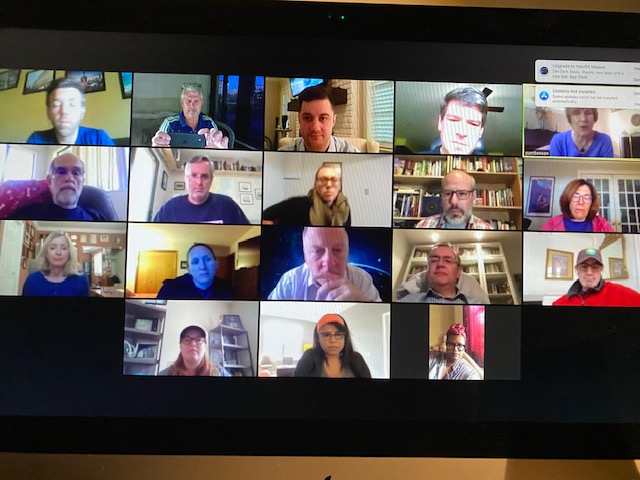
They also brainstormed about ideas for further virtual meetings on Zoom for alumni in both the United States and Germany. Many expressed a desire to take part in talks with experts, newsmakers as well as journalists in each other’s countries to learn more about how each country is dealing with the pandemic that has caused such disruption around the world.
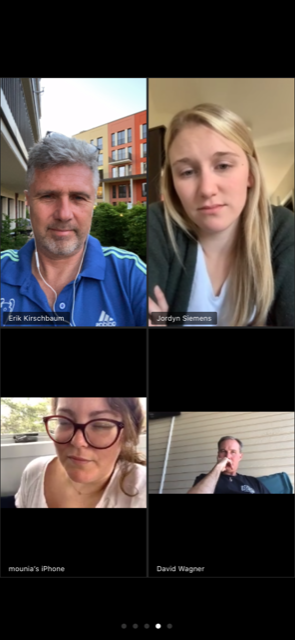
There were 18 alumni in one Zoom meeting on Saturday who talked about their November 2019 alumni program to Berlin around the time Germany celebrated the 30th anniversary of the fall of the Berlin Wall. Many in that alumni group had filed stories back home to their stations on the events in Berlin.
There were 10 alumni in another Zoom meeting on Saturday who reminisced about their September 2019 program to Brussels, Cologne, Erfurt and Berlin. Several of the fellows on that program have already moved onto to new jobs and two of those participants had in the meantime become fathers. The meeting was organized by Bryan Weakland of MSNBC in New York.
There was a dozen alumni in another Zoom meeting on Friday in New York City when the NYC alumni chapter had a Virtual Biergarten happy hour in a meeting organized by NYC chapter leader Michael Garguilo.
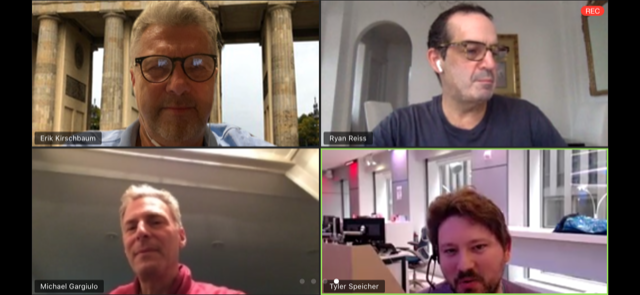
The New York alumni had a lot of brainstorming ideas on possible guest speakers for future meetings with alumni — a wish list headed by such luminaries as former RIAS honorary chairman Phillip Murphy, who is now the governor of New Jersey.
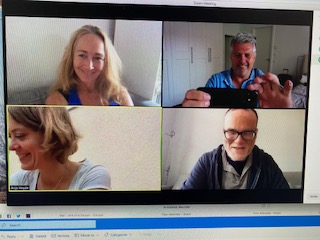
There was also a virtual meeting on Friday of a senior editors group from November 2017 that travelled around Texas to learn more about border security and immigration — a hot issue in the state and across the country then as well as it is now. There were five participants from that small group and they even managed to clink their glasses in a virtual toast to each other at one point.
The RIAS Berlin Commission is currently working on expanding the Virtual Zoom meeting programs to include a number of guest speakers from both Germany and the United States. Peter Beyer, a member of the RIAS board and the German government’s coordinator for transatlantic issues, is planning to give one of the first such Virtual Talks to RIAS alumni and candidates on May 19. More details on that and other virtual talks will be announced soon.
May 2, 2020
RIAS alumni group meets online for reunion after Fall 2018 program
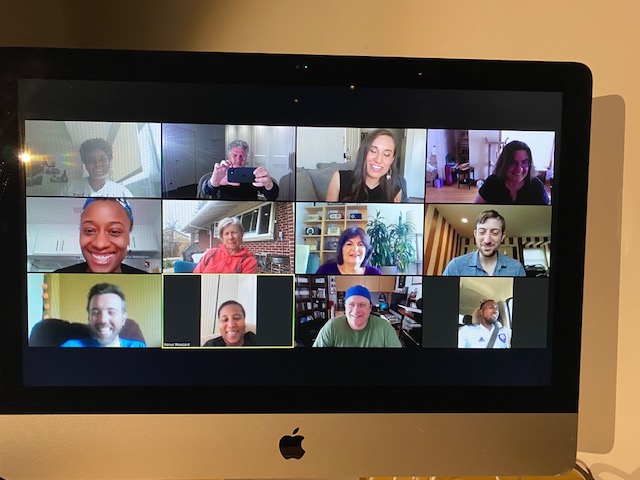
Twelve American journalists who took part in a RIAS program to Germany in 2018 reconnected for a virtual online reunion on Saturday from locations across the United States in three different time zones.
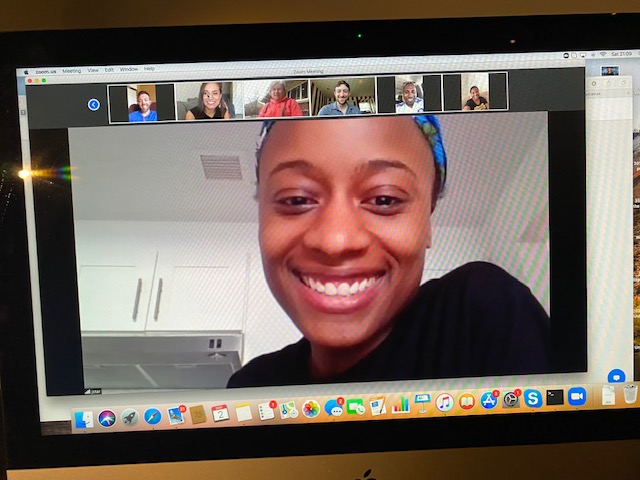
Determined not to let the coronavirus crisis get in the way, the 12 Americans from the fall of 2018 group came together for a virtual meeting on Zoom for more than two hours.
They shared stories of how they and their TV or radio stations or media outlets are dealing with the Covid-19 lockdown and how they have been in the 18 months since their two-week tour of Brussels, Cologne, Mainz and Berlin in September 2018.
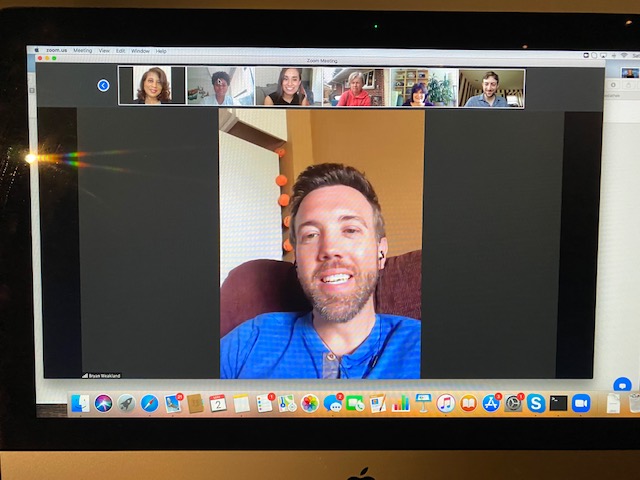
The group that bonded so well during the RIAS program in Europe has stayed in contact over the last 18 months through their WhatsApp group — sharing news of career moves, important stories they were working on, their travels and some of their family developments among lots of other things.
Some of the fall 2018 alumni had taken part in RIAS alumni gatherings in Washington DC, New York and in Berlin — as well as at the annual RTDNA EIJ convention in San Antonio, Texas in 2019.
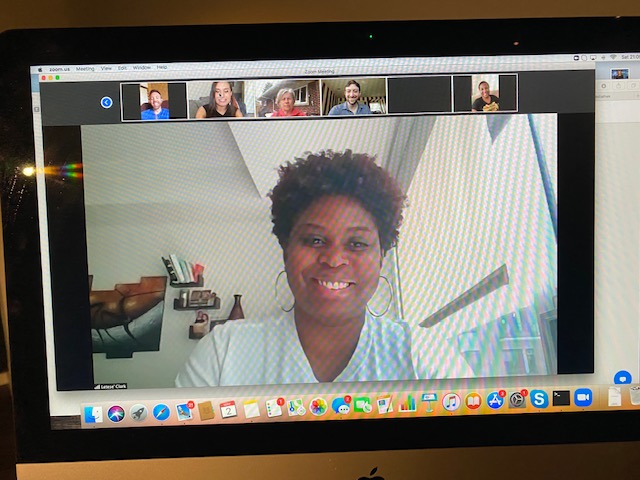
There was a longing, nevertheless, to connect again as a group.
“We should do a virtual HH (happy hour) soon,” Latese Clark in Washington DC suggested recently. The idea caught on fire and all 12 members of their group quickly agreed to take part. One member of the group, Justin Campbell, had his smartphone camera set up on the dashboard of his car as he drove around in Florida. Another member, Kane Faranbaugh, apologized for missing the first half hour of the reunion because he admitted he got the 3 p.m. Eastern Standard Time (EST) start confused with his Central Standard Time (CST) home base in Illinois.
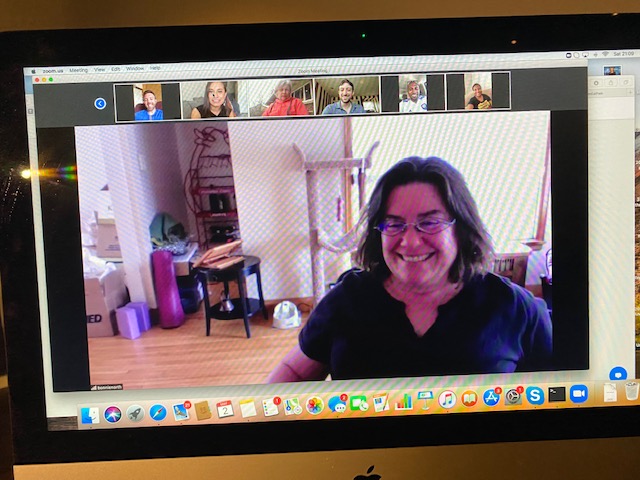
Alongside Latese Clark, members of the virtual reunion included: Jessica Prater (CNN New York), Bonnie North (public radio in Canton, New York), Gitzel Puente (KJRH TV, Tulsa, Oklahoma), Carol McKinley (freelance ABC, CBS Littleton, Colorado), Judith Synderman (freelance Washington DC), Kenya Woodard (CTTV, Tampa, Florida), Andrew Lapin (Editor, Detroit Jewish News), Justin Campbell (WJXT TV, Jacksonville, Florida), Bryan Weakland (MSNBC, New York), Kane Faranbaugh (Voice of America, Midwest, Illinois).
The alumni talked about the different stages of lockdowns and reopenings in their parts of the country as well as the impact that the coronavirus crisis was having on their work — many have been working in home office for much of the last two months. They also shared their experiences about the economic havoc being caused by the pandemic and the shutting of businesses in their cities and states.
They all shared fond memories of their RIAS trip to Germany and alumni gatherings that some have attended since. There will hopefully be a big RIAS alumni reunion in Berlin with about 30 participants in the fall of 2021 around the time of the next scheduled German election and many said they hoped to take part in that.
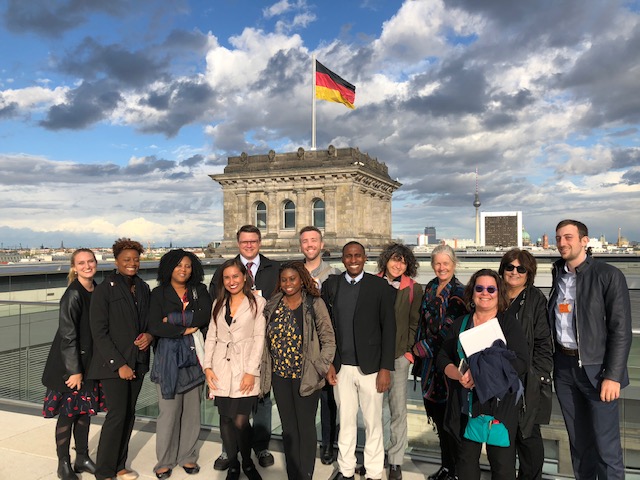
April 24, 2020
RIAS Media Prize winners for Digital Video talk about their award-winning report
Here is a short interview with Han Park. Together with his colleague David Diwiak, they are the winners of the RIAS Digital Award 2020 for their report entitled “Veggie vs. Labor?”
Question: Where did you get the idea to do your story?
Park: Veggie products have become more and more popular in German grocery stores. Most people are not critical about the ingredients at all. As I am a journalist and have a passion for food, I was interested in researching meat alternatives and the announced “revolutions” on the market. My vegetarian colleague David was a perfect partner.
Question: When and exactly where did it air?
Park: It aired on STRG_F, our YouTube-channel by funk, NDR and Panorama. The publishing date was 4th June 2019.
Question: What’s the bigger story you hoped to tell?
Park: We asked ourselves how and what we will eat in a few years. Can fake meat save the world? What are the ingredients? How much money do you need to save the world?
Question: Do you like veggie hamburgers?
Park: It really depends: I dislike seitan burgers. Veggie burgers can be good, when they don’t imitate meat. But mostly I prefer butcher’s burger meat. David is vegetarian.
Question: Did you like them more before or after the story?
Park: While making the story, I really fell in love with the taste of a vegetarian burger that “bleeds” and tastes like a meat burger. Driven by biotechnology, the evolution of meat alternatives has reached a new milestone. The future can taste good.
Question: How much money did you spend on all these hamburgers?
Park: A lot. Fake meat is way more expensive than real meat. Or animal-meat is too cheap compared to meat alternatives.
Question: How much was the most expensive one?
Park: We had a chicken nugget made of cell-based meat. The company told us that the nugget cost about $100.
Question: How much time did you spend on your story – talking with the protagonists and others?
Park: We spent almost half a year from the start of research till finishing the story.
Question: Was it difficult to find the protagonists in your story or did they fall into your lap?
Park: It was really, really, really, really hard to find the protagonists. Many companies have started to fundraise money. A few companies have started to research on cell-based meat, but the technique is top secret and not yet market-ready. We contacted almost all of the companies in the world, and fewer than five have produced more than a gram of cell-based meat. Only one company has gave us the opportunity to eat it.
Question: Do you think things in the United States serve as a prototype for Germany? Or vice versa? Or are the two countries just too different in too many ways?
Park: In terms of start-up entrepreneurships, the United States are a prototype. We started our research in San Francisco, it is the center of cell-based start-ups. The latest big businesses like Uber, twitter and Google have their headquarters in that dynamic area. The fastfood scene is awesome – maybe the best I have ever experienced.
Question: Do you think Germans are open enough to learning from the experiences of the United States?
Park: I can’t say for Germans, but I hope everybody is open to learning from others. But it’s always important to ask questions.
Question: Your story is incredibly neutral and non-partisan – anyone watching that story would probably never know if you preferred US or German veggie food. How difficult was that to do? How important is that for journalism?
Park: Nobody cares about politics when it comes to food. The most important thing is the taste. But most of all, we are journalists. We always look for a non-ideologic approach. It doesn’t depend on countries.
Question: Anything else you’d like to add?
Park: We enjoyed the research. We are happy that we have tasted the future of meat. And we are keen to see if cell-based meat can save the world.
April 17, 2020
RIAS student program alumni Ailport wins Congress-Bundestag Fellowship
RIAS alumni Michelle Ailport of Arizona State University took part in the RIAS summer exchange program in 2019. After getting her first exposure to Germany on that three-week fellowship, Ailport applied for the “Congress-Bundestag Youth Exchange for Young Professionals” fellowship in the fall and got accepted. Here is a short interview with Ailport about RIAS and the Congress-Bundestag program:
Question: Congratulations on getting the Bundestag scholarship. How did you hear about it?
Ailport: I heard about the Congress-Bundestag program from Andrew Adair back in November. It came across his email and he shared it with the summer 2019 RIAS student group. I decided to give the application a shot and I’m glad I did.
Question: How did your RIAS experience help you prepare for the application–and did it help your chances?
Ailport: My RIAS experience definitely prepared me to apply for CBYX. Aside from inspiring my need to come back to Germany, everything I learned on the summer program helped me during the interview process.
Question: What were some of the lasting things you learned during the RIAS summer exchange program?
Ailport: I’m still in awe of the media industry in Germany. I was working at Arizona PBS in the fall and I think I made my supervisor a little jealous after sharing what journalism is like in Germany (especially considering the robust budget for German public broadcasting media). Aside from the things that I learned, I’m thankful for all the connections I made and have kept since traveling to Berlin.
Question: What does the Congress-Bundestag scholarship entail? How long will you be in Berlin? What will you be doing?
Ailport: The Congress-Bundestag Youth Exchange for Young Professionals is a fellowship funded by the German Bundestag and the U.S. State Department. Each year it supports an exchange for 75 Americans and 75 German young professionals ages 18 and a half to 24 years old to live, study and work in each country. Normally the program would begin in late July or early August, but given the current climate, the program will not begin until 2021. Normally it’s a year long but the official program has been shortened by Covid-19. If I can I plan on staying in Germany through the end of 2021 past the program end date permitting and take the whole year off from ASU.
Question: Do you speak German? Are you planning to learn it?
Ailport: Eine bisschen. It’s been a while since I’ve been in a German classroom so I’m excited to grow my language skills. I’m learning Polish over the summer through an intensive program at ASU so I’ll likely get to use that while in Germany as well. As an aside note, if anyone is down to help me study or practice, I would love that. I’ll start intensive German language study October through December.
Question: What are you career goals? How might the Congress-Bundestag fellowship help?
Ailport: I’m currently studying journalism and public policy. While I’m still exploring how I’ll spend my future career, I know RIAS and CBYX have been and will be the hallmarks of my experience as a young professional. In Germany, I’ll likely seek an internship in journalism/media or government.
April 6, 2020
RIAS Media Prize winners talk about their award-winning reports
As part of a series looking more closely at the 2020 RIAS Berlin Commission Media Prize winners, here is an interview with Monica Quintero of KPEJ KMID TV in Odessa/Midlands, Texas and David Wagner of KLST/KSAN in San Angelo, Texas who worked on their story “Beyond Borders – A Trip Abroad” during their two-week RIAS Berlin Commission fellowship in September 2019. Their reporting aired on those stations in Texas in November 2019.
Question: Where did you get the idea to do your stories?
Monica Quintero: Before going to Europe, we read many of the books that RIAS
recommended and found out the countries there were dealing with many of the same heated issues that we deal with here in America. So, that’s where we got the idea from for the stories and along the way, they developed into much more than we even anticipated. We were given access to
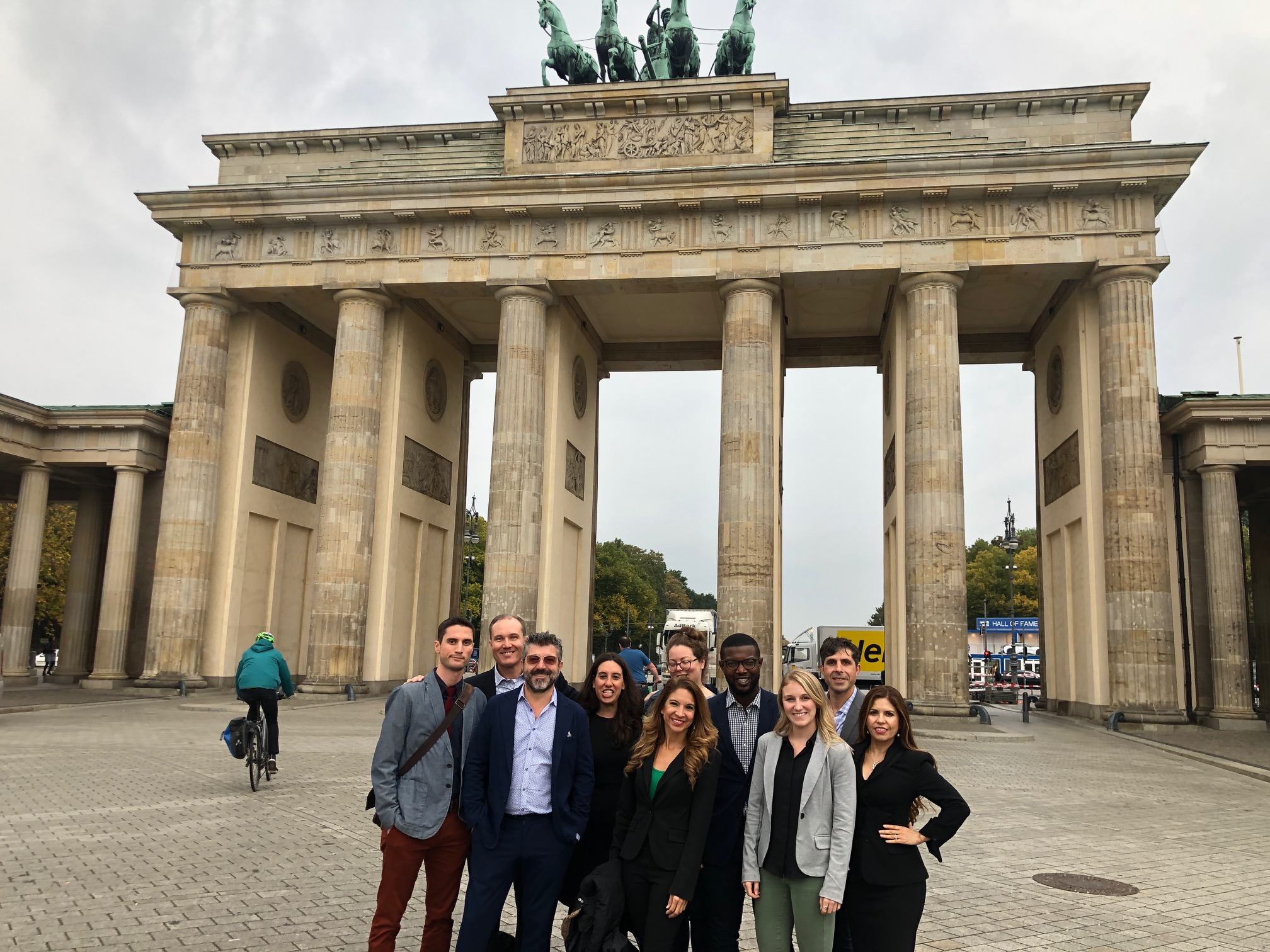 some top leaders and that helped us give even better insight to many of the issues.
some top leaders and that helped us give even better insight to many of the issues.
Question: When and exactly where did they air? Were they part of a nightly series at both of your stations? Or even more widely seen?
Question: How much time did you spend on your story? Talking with the protagonists and others?
Question: How did you manage to squeeze all the work into your RIAS fellowship? Did you sleep at all?
Question: Was it difficult to find the protagonists in your story? Or did they fall into your lap?
Question: Do you think things in Germany could serve as a prototype for the United States? Or are the two countries just too different in too many ways?
Monica Quintero: That question is one I wanted to leave up to the viewers.
Question: Do you think Americans are open to learning from the experiences of other countries?
Question: Your story on gun control is extraordinarily neutral – anyone watching that story would never know how you personally felt about gun control in Germany or Texas. How difficult was that and do you feel that is what journalism should be?
Question: Anything else you’d like to add?
March 20, 2020
RIAS Media Prize event cancelled due to coronavirus
The RIAS Berlin Commission regrets to announce that its Media Prize gala event will not take place in 2020 due to the coronavirus crisis. The annual event celebrating outstanding broadcast journalism covering transatlantic issues was scheduled for May 7 in Berlin, where the five winning entries of the Media Prize competition from the United States and Germany were to be honored. A grand RIAS alumni party scheduled for May 8 in Berlin has also been indefinitely postponed.
The RIAS Berlin Commission will pay tribute to the 2020 winners at the next Media Prize ceremony in 2021. The RIAS Berlin Commission annually presents awards for excellence in reporting on German-American issues. The awards are given for radio, TV and internet productions which made special contributions to the mutual understanding between the people of Germany and of the United States of America.
There will also be fuller reports on each of the winning stories on the www.riasberlin.org website in coming weeks. In the meantime, here are the findings from the independent panel of journalists from the United States and Germany who met at the historic RIAS building in Berlin-Schoeneberg on March 7 to pick the five winners from among nearly 100 submissions.
RIAS TV Award:
Bill Whitaker: “60 Minutes – The Rock”
“The Rock” opens with a reference to a previous 60 Minutes report — recognized by RIAS — comparing the German and American incarceration systems and raising the question: Could a German-style focus on rehabilitation work in a United States prison?
In the piece, Bill Whitaker introduces us to a prisoner-turned-college hoops star, wardens who dare to show weakness around inmates and prison lifers who find redemption in counseling young inmates to seize the opportunity of a second chance. Through their voices and experiences viewers are introduced to a program in one of the toughest U.S. prisons, inspired by what officials saw in Germany and challenged to reconsider the role of imprisonment in modern society.
While the jury deliberated long and hard over whether to award a prize to a journalist recognized in 2017, “The Rock”’ stood out, not only as an example of highest quality reporting, but as a testament to the RIAS mission: promoting mutual understanding between German and American society through a free exchange of information and ideas.
RIAS Radio Award:
Wiebke Keuneke: “Jenseits des American Dream – deutsche Sozialarbeiter unterwegs in den USA“ Listen here
In Wiebke Keuneke’s impressive radio report she accompanied twelve Berlin social workers on their journey to Chicago and Detroit. She recorded the critical, often skeptical and sometimes shocked impressions that the encounter with the reality of American social work led to.
The differences between Europe and the USA are clearly worked out and classified in the journalistic protocol of these encounters, yet it is always clear how universal the underlying questions are: It is about exclusion and lack of opportunities on the fringes of society, which can lead to violence and crime – and about fighting against them.
The report is brimming with a curiosity about another world. At the same time, it is about respect for the people who are trying to change something there. It is an outstanding example of how productive it can be in transatlantic relations to develop a mutual interest in the problems of everyday life, while remaining open and willing to learn instead of turning away from one another. Curiosity about one another helps everyone. Wiebke Keuneke has succeeded in curiously accompanying and exciting this learning process through journalism.
RIAS Digital Video Award:
David Diwiak, Han Park: “Veggie vs. Labor?”
From its very first moments, the video report Fleischersatz: Veggie vs. Labor? captivated the jury with its energy and attitude. David Diwiak and Han Park of youth-oriented NDR online-channel STRG_F explore the growing market for and appeal of meat replacements, both natural and man-made. Eating their way through many mouthfuls in the process, the team manages to shed light on the science, business, and ethics of cultured meat, as well as the differing views in Germany and the US when it comes to genetically modified foods. What starts as a humorous taste test quickly evolves into a well-thought out exploration of the current meat alternative offerings, and those soon to come via technological innovations. Interviews, animation, a deep dive into the California fake meat start-up scene, and other research are all used to excellent effect, leaving the jury hungry for more from this clever duo of young journalists.
RIAS Fellow Award TV:
Monica Quintero, David Wagner: “Beyond Borders – A Trip Abroad”
A thoughtful and intelligent TV documentary that successfully expands viewers’ knowledge of the 30th anniversary of the fall of the Berlin Wall. David Wagner and Monica Quintero bring the story into the present day by offering their West Texas audience a comparative look between the infamous symbol of the Cold War and today’s Mexico-United States barrier or Border Wall. The documentary deftly delves into the historical circumstances behind the two barriers while providing compelling snapshots of current day issues, including immigration and gun control in each country. Viewers are enticed to decide for themselves whether or not history is repeating itself. Wagner and Quintero utilize a powerful mix of interview subjects and eyewitness testimony. The audience is given further pause at the description of the mixed emotions with which the then West- and East Germans greeted the fall of the Wall: from unbridled joy to confusion to sadness. “Beyond Borders: A Trip Abroad” surpasses the expectations of its title by bringing home to West Texas a pivotal epoch in German history within the context of today’s headlines.
RIAS Fellow Award Radio:
Christopher Conover: “The Buzz: German Perspectives on Immigration” Listen here
At a time of growing anxiety on both sides of the Atlantic over the short- and long-term implications of mass migration, RIAS fellow Christopher Conover of Southern Arizona public radio explored Germany’s recent experience with the refugee influx of 2015 and what lessons America can take from it. In a series of in-depth interviews with people on the front lines – the architect of Europe’s “refugee deal” with Turkey, a Syrian who nearly died trying to cross the Mediterranean on his way to Germany, and a German journalist who covered the crisis – Conover’s dispatch offers a window into the complexities, challenges and contradictions of Europe’s approach to migration. By letting those closest to the German crisis offer a nuanced picture of their views and experiences, the work exemplifies the RIAS Commission’s founding principle to promote German-American understanding.
March 11, 2020
RIAS Berlin Commission Media Prize Award Winners Chosen
The RIAS Berlin Commission’s 2020 Media Prize award winners were selected by an eight-member panel of international journalists for radio and television stories that recognize the best contributions of transatlantic broadcast journalism. The winners and their stories that touch on transatlantic issues will be honored at a gala ceremony in Berlin on May 7. Three of the winning entries were from the United States and two from Germany.
The independent jury reviewed the scores of entries at the RIAS building in Berlin and spent hours discussing and debating the submissions.
The jury members included: Helge Fuhst (ARD Tagesschau Deputy Editor-in-Chief), Matthew Karnitschnig (POLITICO Chief Europe Correspondent), Christian Wilp (N-TV Chief Correspondent), Dr. Richard Meng (Former Correspondent Frankfurter Rundschau), Susan Woosley (KCRW Berlin), Melissa Eddy (New York Times Correspondent), Susan Stone (freelance journalist, podcast producer/formerly NPR), Michael Gargiulo (WNBC News Anchor).
There will also be a RIAS alumni celebration in Berlin on May 8.
Here is a list of the winners selected by the jury:
RIAS TV Award:
Bill Whitaker: “60 Minutes – The Rock”
RIAS Radio Award:
Wiebke Keuneke “Jenseits des American Dream – deutsche Sozialarbeiter unterwegs in den USA“
Listen here
RIAS Bewegtbild Digital Award:
David Diwiak, Han Park: “Veggie vs. Labor?”
RIAS Fellow Award (Radio):
Christopher Conover: “The Buzz: German Perspectives on Immigration”
Listen here
RIAS Fellow Award (TV):
Monica Quintero, David Wagner: “Beyond Borders – A Trip Abroad”
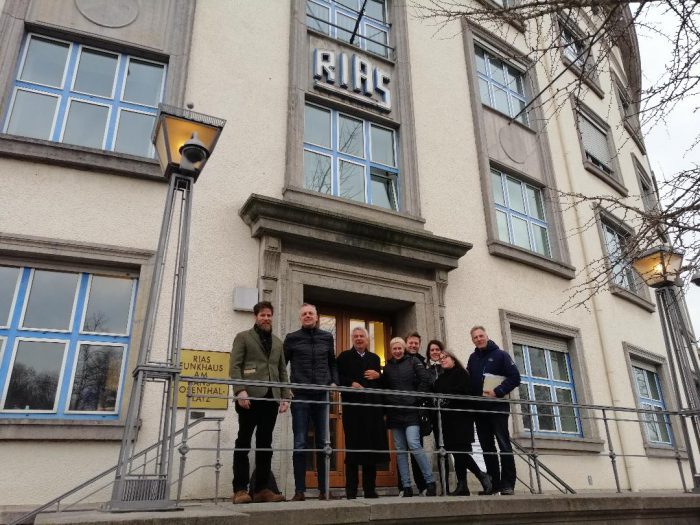
March 10, 2020
March RIAS Berlin Commission programs to the USA postponed
RIAS Berlin Commission deeply regrets to announce that its programs scheduled for March (standard journalist program and ERP student program) will be postponed until either the fall of 2020 or later due to the current disruptions associated with the corona virus pandemic.
All participants of the standard journalist program will be offered a spot in subsequent programs, which will hopefully be rescheduled as soon there is more clarity regarding the situation. An important consideration behind the decision was the concern that transport disruptions caused by the pandemic could lead to substantial problems for participants to return to Germany in late March and mid-April, respectively. The possibility that some participants could be stranded for prolonged periods due to transportation shutdowns could not be ruled out. In addition to the above-mentioned issues, many US newsrooms and universities that RIAS participants had been scheduled to visit have been cancelling appointments and restricting visitor regulations as part of their precautionary measures.
February 12, 2020
Peter Beyer, German government’s transatlantic coordinator, talks to RIAS alumni group
 RIAS Berlin Commission board member Peter Beyer gave a riveting two-hour talk to a group of 28 RIAS Berlin alumni members. Beyer, a member of parliament for the conservative Christian Democrats, is also the German government’s transatlantic coordinator. He talked candidly about many of the challenges facing German-American relations at the moment. He stressed nevertheless that “there is more that unites us than divides us.”
RIAS Berlin Commission board member Peter Beyer gave a riveting two-hour talk to a group of 28 RIAS Berlin alumni members. Beyer, a member of parliament for the conservative Christian Democrats, is also the German government’s transatlantic coordinator. He talked candidly about many of the challenges facing German-American relations at the moment. He stressed nevertheless that “there is more that unites us than divides us.”
Beyer said he travels to the United States about once each month and made no secret of his positive view of the country and its people. He said he sometimes wished that German journalists would report more of other parts of the country away from Washington D.C. After giving his talk, Beyer took time to do several interviews with some of the RIAS alumni who brought their microphones to the event.
It was one of the biggest alumni chapter meetings ever in Berlin and kicks off a big year of alumni events. Another big alumni event will take place in Washington DC on March 13 and another one on March 20 in New York City when a group of 12 journalists from Germany on a RIAS program to the United States meets with the local chapters.
There will also be a large RIAS alumni event on May 7 in Berlin at the annual RIAS media prize awards ceremony and a special alumni gathering the following evening in Berlin on May 8.

January 14, 2020
RIAS picks 12 journalists, 15 students for March-April exchange programs in USA
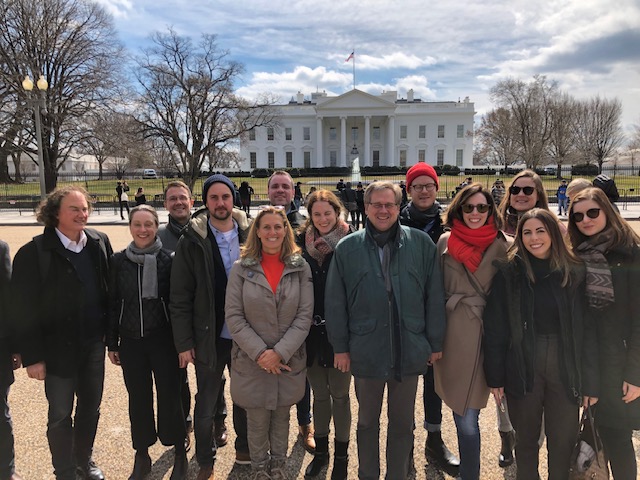
The RIAS Berlin Commission has selected 12 journalists from Germany to take part in its three-week March program to the United States. Funding for two of the 12 journalists came from RIAS alumni in Germany, who donated a total of 11,000 euros in 2019. The journalists will together spend four days in Washington DC, six days in New York and six days on their at a “station week” visits with RIAS alumni from the United States across the country — from San Angelo, Texas to Chicago, Illinois and from Seattle, Washington to Bloomington, Indiana. The station weeks are concentrated in heartland states (4 in Texas, 1 in Arizona, 1 in Indiana, 1 in Nevada, 1 in Illinois) and three on the coasts in Seattle, Oregon, and New York City.
Five of the journalists on the March 10-27 program are from commercial networks or companies while seven come from public broadcasting stations. Three of the journalists come from formerly communist eastern Germany, where the legendary RIAS radio station was a popular source of news, information and rock music for millions of East Germans as the “voice of the free world” during the Cold War.
- Lena Mosel, WeltTV –
- Peter Neuhaus, WDR/DLF
- Katharina Hambacher, DLF
- Jan Fritsche, ZDF –
- Najima El Moussaoui – WDR, NTV
- Julia Gruenwald – MDR
- Martje Freese – NDR Tageschau/Phoenix
- Etienne Bell – NTV
- Michelle Martin, Reuters TV
- Romy Hiller, NDR
- Manuela Kasper-Claridge, Deutsche Welle
- Sven Christian – Spiegel TV
—
The RIAS Berlin Commission has also selected 15 students of journalism and related fields for the first-ever student program in the United States — thanks in large part to an ERP grant. The 15 students will spend three days in Washington DC, three in New York City and then two weeks at universities across the country — from Montana to Texas A&M, from Hawaii to Wisconsin and from Minnesota to Oklahoma.
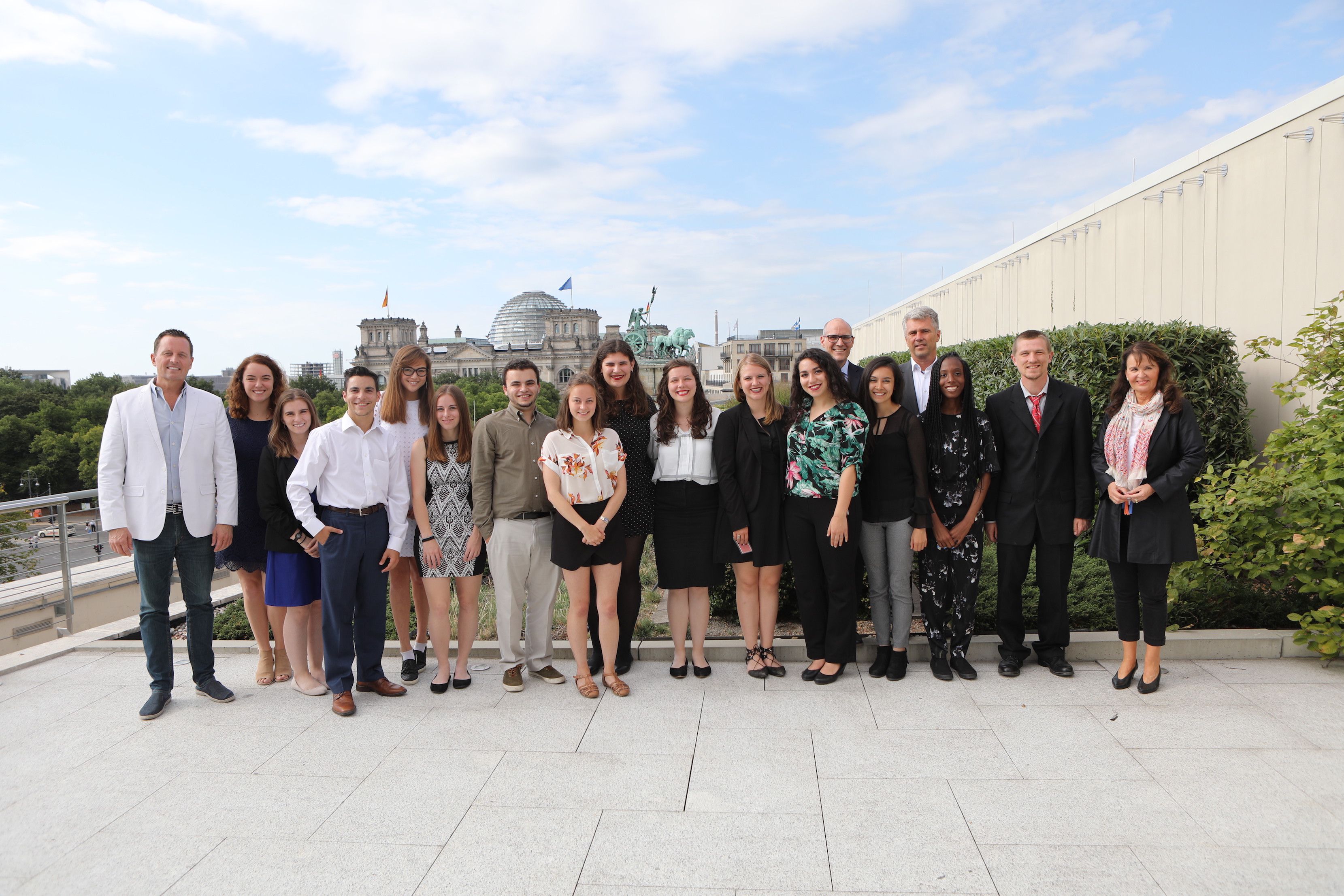
It is the reciprocal program to the summer exchange program for US students in Germany that was launched in 2018. The university hosts are for the most part RIAS alumni who will be showing the Germans how campus radio and TV stations work as well as campus newspapers and journalism classes.
Five of the 15 students come from formerly communist eastern Germany and 12 of the 15 are from universities in eastern Germany. The German students, many of whom have never been to the United States before, will be mostly spending their two-week campus visit at universities in heartland states. The 15 students come from 11 different universities or journalism schools: University of Leipzig (3), University of Applied Sciences Magdeburg-Stendal (2), Springer Akadamie (2), Halle-Wittenberg (1), University of Applied Sciences Mittweida (1), Cologne (1), Wilhelmshaven (1), Free University (1), Humboldt University (1), RTL Journalism School (1) and Deutsche Journalism School (1).
home university/j-school University to visit in USA
- Jana Glose – University Wilhelmshaven – University of Oklahoma, Norman
- Daniel Heyd – RTL Journalistenschule – University of Oklahoma, Norman
- Florian Sädler – Springer Akadamie – University of Oklahoma, Norman
- Lara Jäkel – Free University Berlin – Texas A&M, College Station, Texas
- Sarah-Maria Köpf – Halle-Wittenberg – Texas A&M, College Station, Texas
- Simon Lanzerath – University Cologne – University of Montana, Missoula, Montana
- Adrian Liehr, University Leipzig – Humboldt State University, Arcata, California
- Jessica Schäfer, Magdeburg-Stendal – University of Minnesota, Minneapolis, Minnesota
- Anna Seikel, University Leipzig – Western Washington University, Bellingham, Washington
- Rieke Smit, Magdeburg-Stendal – New Mexico State University, Las Cruces, New Mexico
- Friedrich Steffes-Iay, Springer Akadamie – Arizona State, Phoenix, Arizona
- Tom Wagner, Humboldt University – University of Hawaii, Honolulu, Hawaii
- Marita Wehlus, Deutsche Journalistenschule – University of Indiana, Bloomington
- Amy Woyth, Mittweida – University of Wisconsin-Oshkosh, Oshkosh, Wisconsin
- Emma-Matthea Lübbert, University Leipzig – University of Wisconsin-Madison, Madison, Wisconsin
January 6, 2020
Win a trip to Berlin for the May 7, 2020 RIAS Media Prize Awards!
U.S. and Germany-based journalists are invited to enter their best stories that touch on transatlantic or global themes for the annual RIAS Media Prize Awards. The best TV, radio and digital stories aired or published in the year 2019 are eligible for the prestigious competition and winners in each category will be invited to attend the gala prize ceremonies on May 7 in Berlin at the headquarters building of the legendary Cold War-era radio station known as the free voice of the free world.
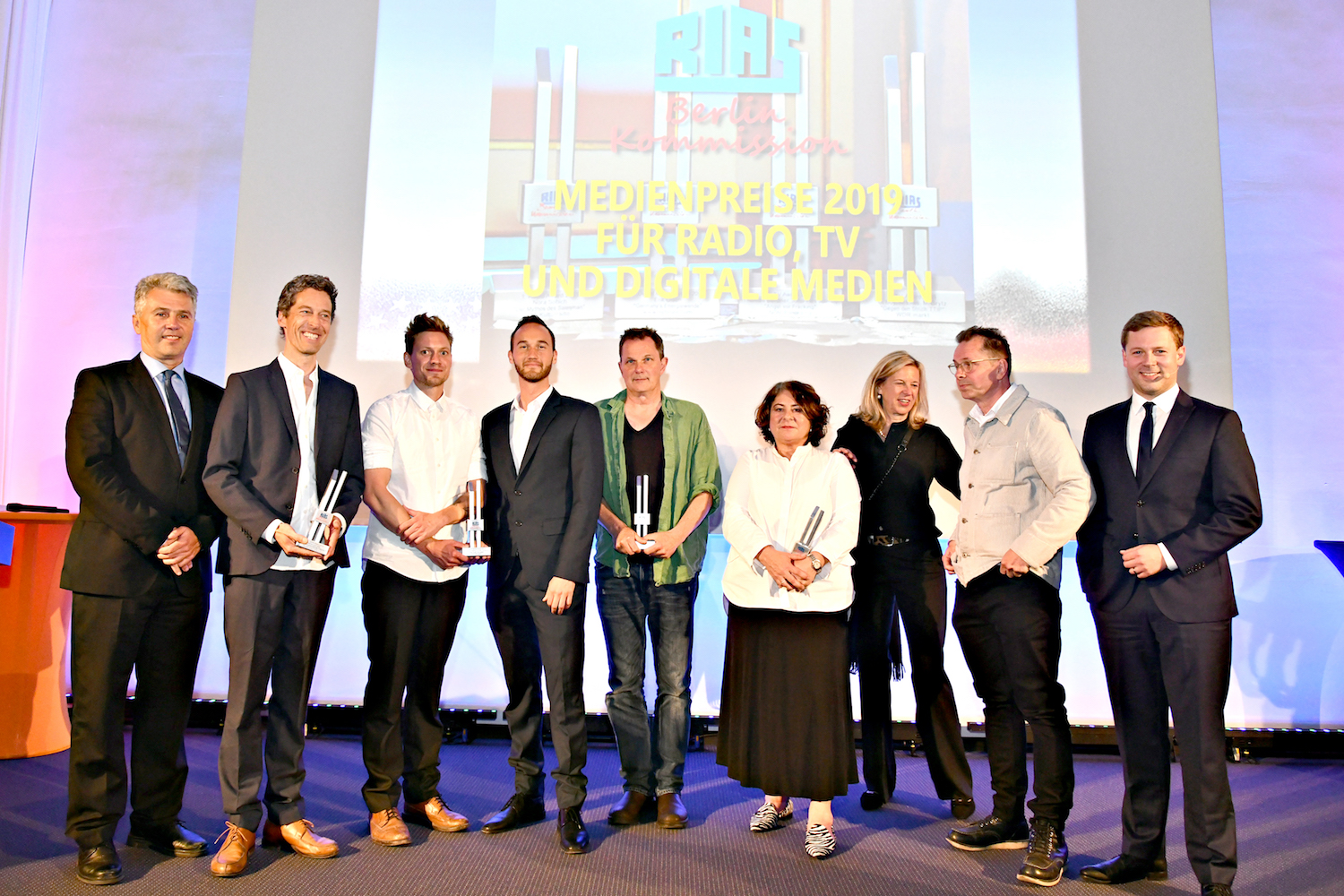
The deadline for submitting entries on January 15, 2020.
